Speakers
Plenary Speaker

Professor of Medicine
Ragon Institute of MGH, MIT and Harvard, USA

Associate Member
Fred Hutchinson Cancer Research Center, USA

Associate Director for Clinical Research
National Institute of Allergy and Infectious Diseases, USA

Research Microbiologist
Centers for Disease Control and Prevention, USA
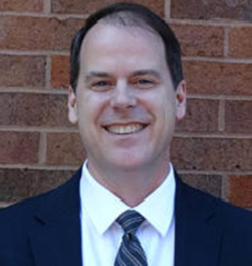
Associate Director
Centers for Disease Control and Prevention, USA
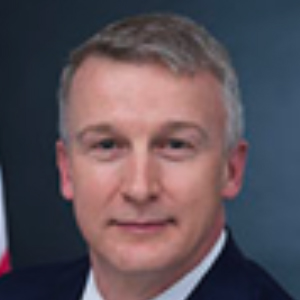
Deputy Assistant Secretary
U.S. Department of Health and Human Services

Chief physician, Professor
China-Japan Friendship Hospital, China

Senior Consultant
National University Hospital, Singapore

Head and Senior Consultant
Tan Tock Seng Hospital, Singapore

Associate Professor
National University of Singapore

Principle Investigator
Utrecht Institute for Pharmaceutical Sciences, The Netherlands
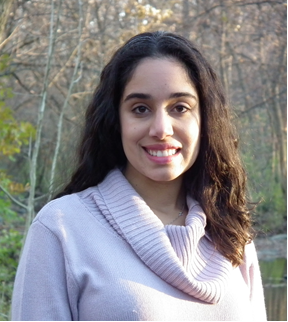
Project Officer
National Institute of Allergy and Infectious Diseases, USA
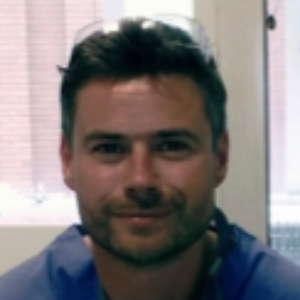
Consultant in Infectious Diseases
Public Health England, UK
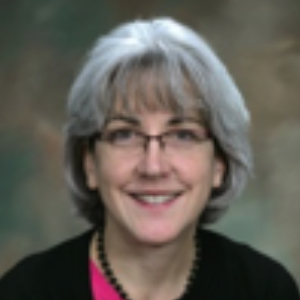
Professor of Medicine
University of Rochester, USA

Professor
Chinese Center for Disease Control and Prevention, China

Professor
National University Hospital, Singapore

Immunologist, Senior Research Scientist
Doherty Institute, Australia

Chief
Centers for Disease Control and Prevention, USA
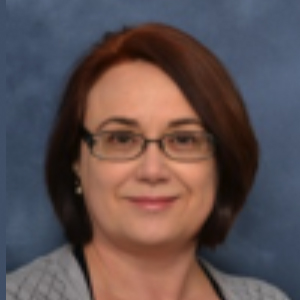
Lead of the Molecular Epidemiology Team
Centres for Disease Control and Prevention, USA
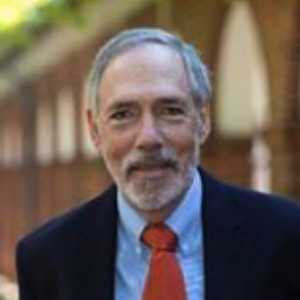
Professor Emeritus
University of Virginia School of Medicine, USA

Assistant professor and Workgroup Leader
Erasmus Medical Center, The Netherlands

Associate Professor and Senior Principal Research
Peter Doherty Institute, Australia

Medical Director
Northwestern University, USA

Professor
Bill & Melinda Gates Foundation, USA

Professor, Epidemiologist
ICES, Canada

Professor, ARC Future Fellow
Monash University, Australia
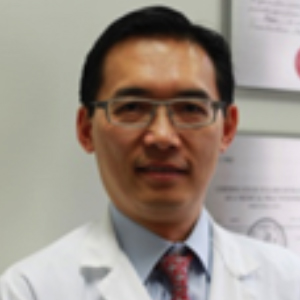
Professor
University of Alberta, Canada

Associate Professor in Infectious Diseases, Veterinary Surgeon
Royal Veterinary College, UK

Associate Professor
Emory University School of Medicine, USA

Associate Professor and Director
National Centre for Infectious Diseases, Singapore

Research Fellow
The University of Melbourne, Australia
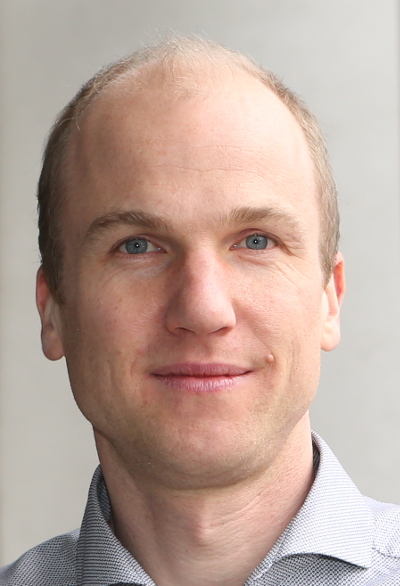
Associate Professor
University of Basel, Switzerland

Professor
Imperial College London, UK

Professor and Chief
University of Utah, USA

Section Chief
National Institutes of Health, USA

Clinical Study Coordinator
Institut Pasteur de Madagascar, Madagascar
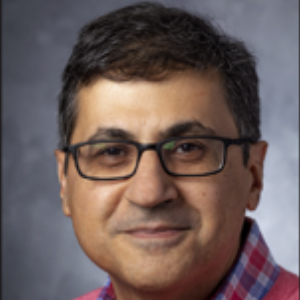
Georgia Athletic Association Professor
University of Georgia, USA

Professor
Columbia University, USA

Professor, Medical officer
World Health Organization, Switzerland

Dean
Sun Yat-sen University, China

Physician Epidemiologist
British Columbia Centre for Disease Control, Canada

Senior Program Officer
Bill & Melinda Gates Foundation, USA
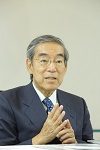
Professor, Director
Keiyu Hospital, Japan

Head of Epidemiology and Associate Professor
WHO Collaborating Centre for Reference and Research on Influenza, Australia

Laboratory Director
U.S. Department of Agriculture, USA
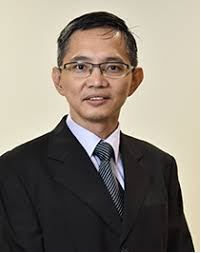
Associate Professor, Co-Director
SingHealth-Duke NUS, Singapore General Hospital

Epidemiologist
Centers for Disease Control and Prevention, USA

Staff Scientist
Scripps Research Institute, USA
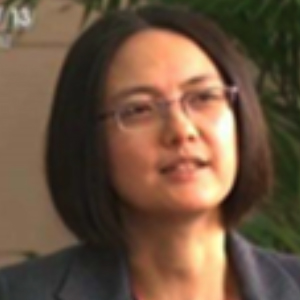
Director
Chinese National Influenza Center, China

Vice President and Secretary General
Chinese Preventive Medicine Association, China

Professor, Executive Director
National Institute for Infectious Diseases, Singapore

Associate Professor
The University of Hong Kong
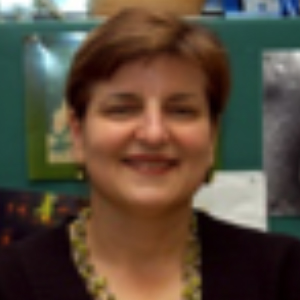
Professor, Virologist
Public Health England, UK
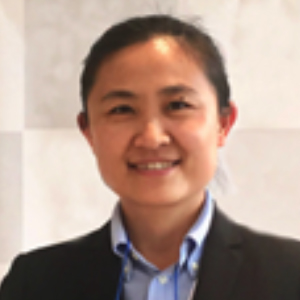
Senior Researcher, Chief of Branch
Chinese Center for Disease Control and Prevention, China
Session Speaker

Associate Professor
Icahn School of Medicine at Mount Sinai, USA

Associate Professor
Dalhousie University and Canadian Centre for Vaccinology, USA

Professor
Imperial College London, UK

EPAC Junior Research Fellow
University of Oxford, UK

Associate Member Fred Hutch; Investigator HHMI
Fred Hutch Cancer Research Center, USA
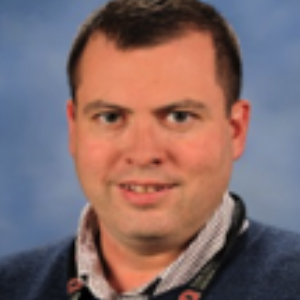
Assistant Professor
The Ohio State University, USA

Research Director
Institut Pasteur, France
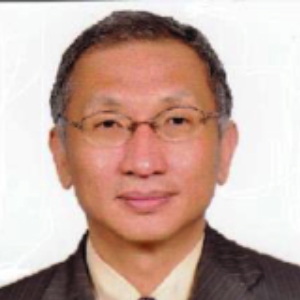
Deputy Director
Ministry of Health, Malaysia

Assistant Professor
National University of Singapore

Clinical Senior Lecturer
Imperial College London, UK
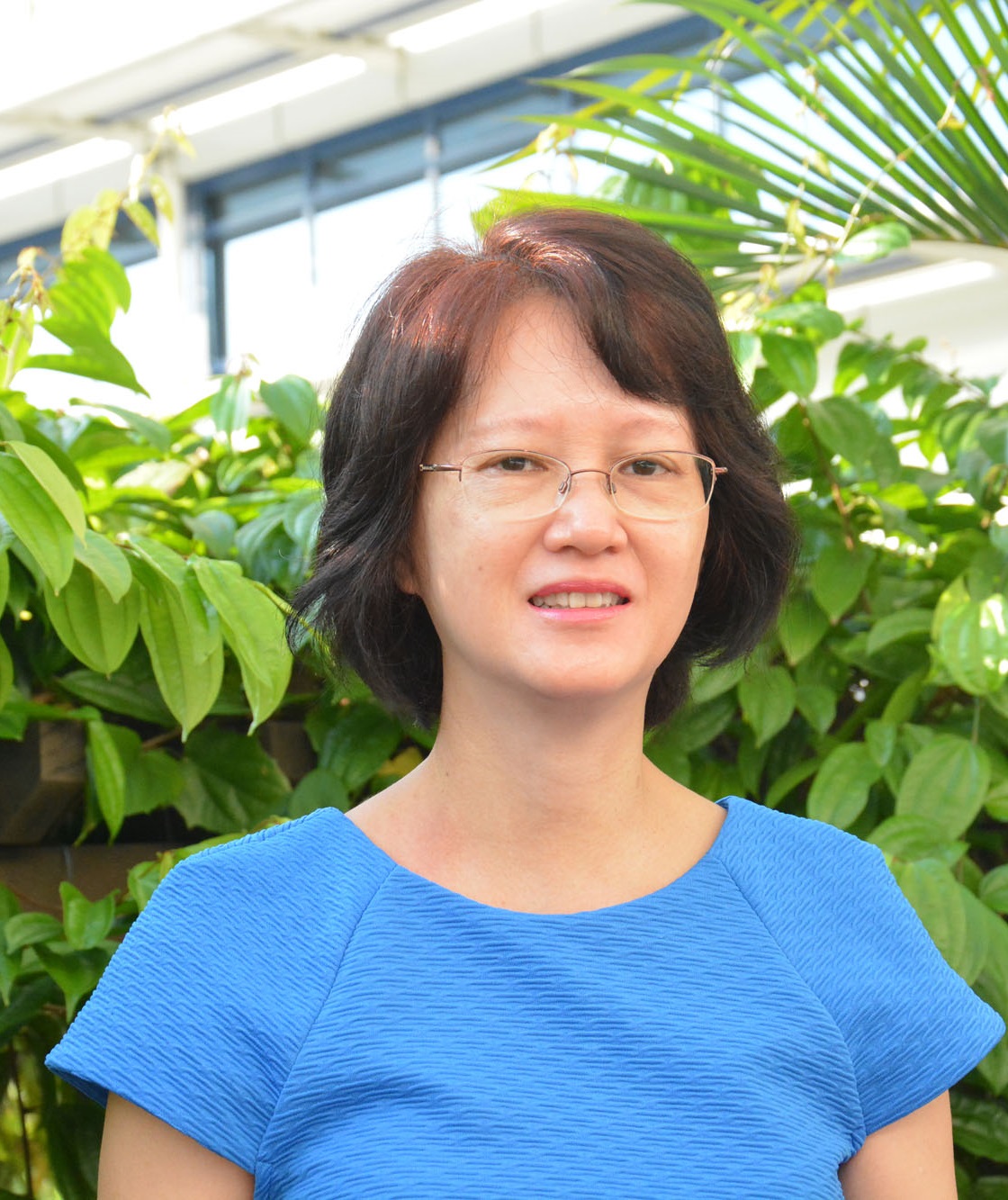
Associate Professor, Director, Senior Consultant
KK Women’s and Children’s Hospital, Singapore

Advisor
Ministry of Public Health, Thailand

Associate Professor
University of Chicago, USA

Centre Head and Associate Professor
National Institute for Communicable Diseases, South Africa
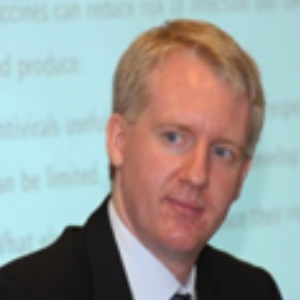
Professor
The University of Hong Kong
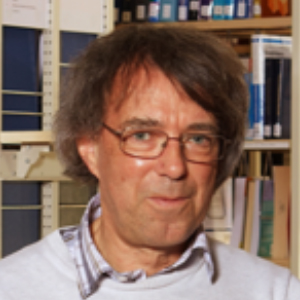
Head
European Molecular Biology Laboratory, France
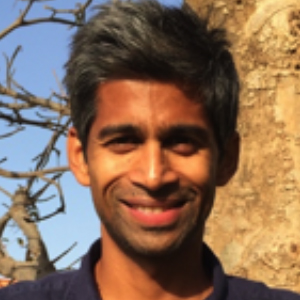
Wellcome Trust Intermediate Clinical Fellow
MRC Unit The Gambia at the London School of Hygiene and Tropical Medicine, UK

Associate Professor
Monash University, Australia

Epidemiologist
Centers for Disease Control and Prevention, USA

Co-ordinator for the Initiative for Vaccine Resear
World Health Organization, Switzerland
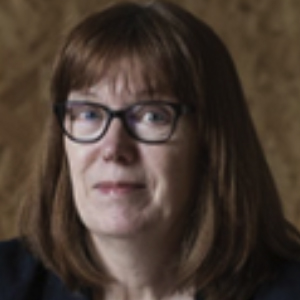
Professor
University of Oxford, UK
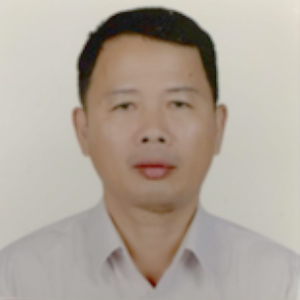
Director of Disease Surveillance Bureau
Ministry of Health, Cambodia

Research Director, Head
Institut Pasteur de Madagascar, Madagascar

Associate Professor
University of South Dakota, USA
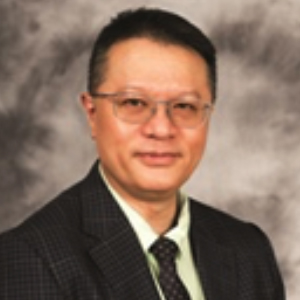
Professor
The Chinese University of Hong Kong

Clinical Professor
The University of Hong Kong

Infectious Diseases Epidemiologist
Centers for Disease Control and Prevention, USA

CHAIR, ISIRV, Associate Professor
University of Otago, New Zealand

Professor, Executive Vice Dean
Peking Union Medical College, China

CEO
Human Link, Lebanon

Professor and Laboratory Head
University of Melbourne, Australia
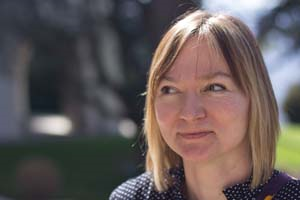
Senior Epidemiologist
Epiconcept, France
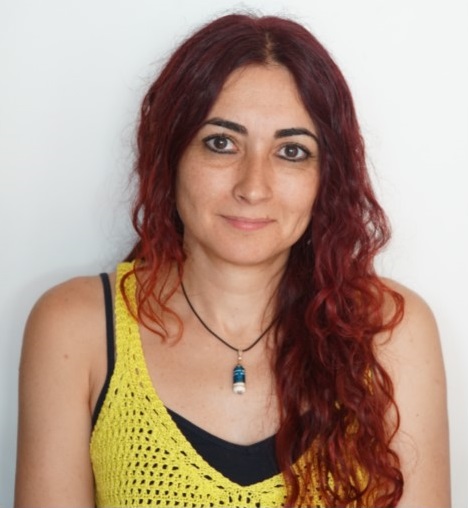
Assistant Professor/Research Group Leader
Izmir Biomedicine and Genome Center, Turkey

Director, Division of TB, HIV & AIDS Control
Korea Centers for Disease Control and Prevention, Republic of Korea

Professor
Icahn School of Medicine at Mount Sinai, USA
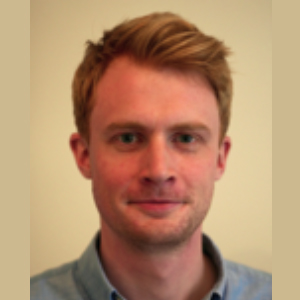
Associate Professor
London School of Hygiene & Tropical Medicine, UK

Professor of Comparative Pathology
Erasmus University Medical Centre, The Netherlands

Professor of Medicine
University Health Network, Canada

Assistant Professor
University of Pittsburgh, USA

Assistant Professor
University of Minnesota, USA

Director
Ministry of Health, Singapore
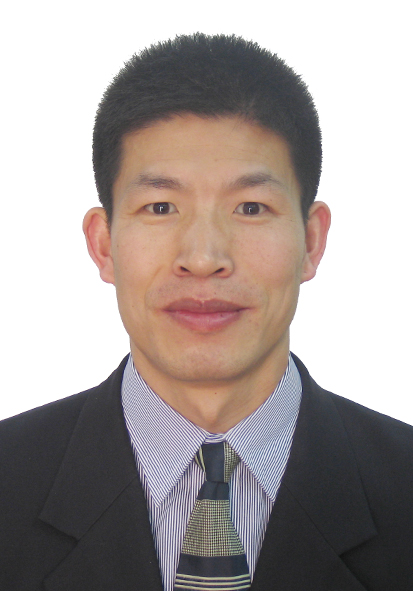
Professor
Harbin Veterinary Research Institute, CAAS

Senior Research Officer
The University of Melbourne at the Peter Doherty Institute, Australia

Deputy Executive Director (Research), Programme Di
A*STAR, Singapore

Associate Professor
University of Wisconsin Madison, USA

Professor
University of Maryland School of Public Health, USA
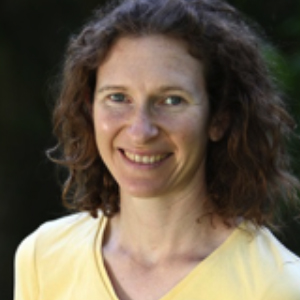
Staff Scientist
National Institutes of Health, USA

Associate Professor
University of the Witwatersrand, South Africa

Medical Researcher
University of Manitoba, Canada
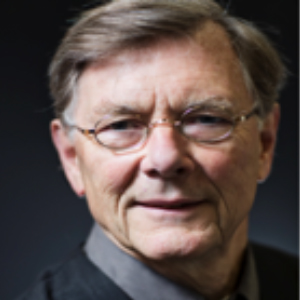
Founding Director, Professor
TiHO, Germany

Professor
Cornell University, USA

Consultant Medical Epidemiologist
Public Health England, UK
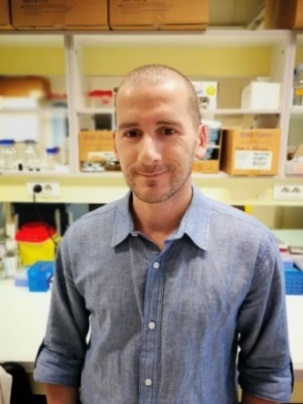
Post-doctoral researcher at CIRI and co-founder of Signia Therapeutics
Centre International de Recherche en Infectiologie, France
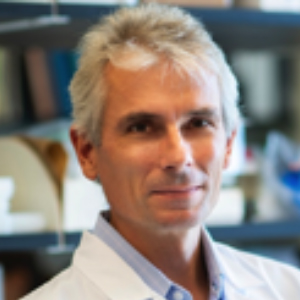
Professor
Georgia State University, USA
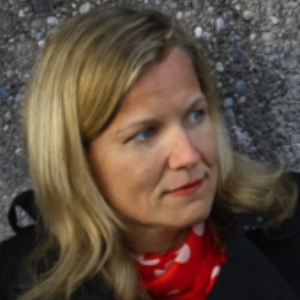
Co-founder & Chair
Vienna Vaccine Safety Initiative, USA

Epidemiologist
Centers for Disease Control and Prevention, USA

Director
University of Georgia, USA

Professor
AMC, University of Amsterdam, The Netherlands
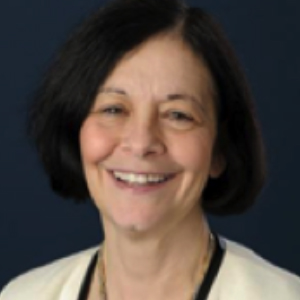
Professor
University of Rochester Medical Center, USA

Professor
St. Jude Children’s Research Hospital, USA

Professor
Medical Center - University of Freiburg, Germany

Professor of Child Health & Outbreak Medicine
University Of Liverpool, UK
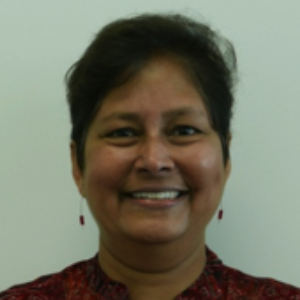
Professor, Director
Peter Doherty Institute for Infection and Immunity, Australia
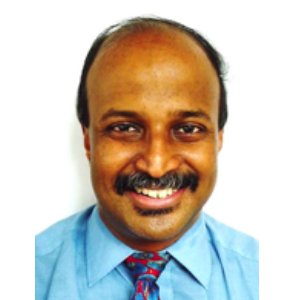
Professor
National University of Singapore
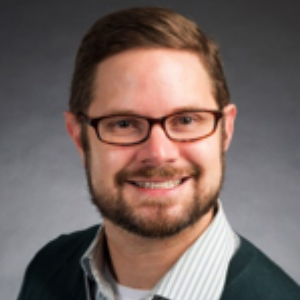
Member
St. Jude Children’s Research Hospital, USA

Professor
University of Georgia, USA
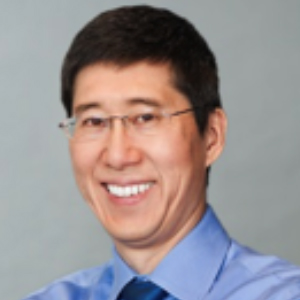
Chief Medical Officer
Centers for Disease Control and Prevention, USA
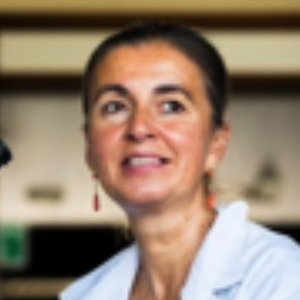
Professor
Ghent University, Belgium

Deputy Chief Medical Officer, Professor
Department of Health and Social Care, UK
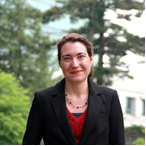
Senior Staff Scientist
National Institutes of Health, USA
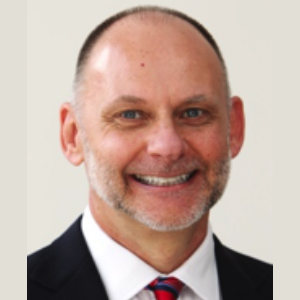
Professor, Senior Staff Specialist
Royal Perth Hospital, Australia

Branch Chief
Centers for Disease Control and Prevention, USA

Professor
University of Chicago, USA

Professor
Duke University, USA

Consultant
National Centre for Infectious Diseases, Singapore

Professor
Fudan University, China
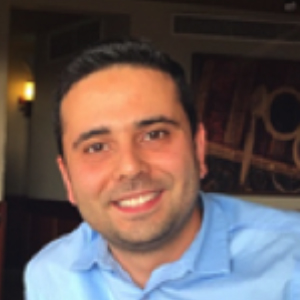
Assistant Professor
American University of Beirut, Lebanon

Professor and Senior Principal Investigator
The First Affiliated Hospital of Guangzhou Medical, China

Associate Professor
The University of Hong Kong

Senior Research Investigator
icddr,b , Bangladesh
About the Speaker
 |

Galit ALTERProfessor of MedicineRagon Institute of MGH, MIT and Harvard, USA Dr. Galit Alter is a Professor of Medicine at the Ragon Institute of MGH, MIT and Harvard. Her researched is focused on the development of systems biology tools to define the correlates of immunity against infectious diseases that ravage the globe. Her work points to unexpected mechanisms of protection against HIV, malaria, and tuberculosis, has led to the development of novel diagnostics to monitor chronic infections/diseases, and now promises to accelerate the development of novel classes of therapeutics able to deploy the activity of the innate immune system in a specific and controlled manner. |
|
|
Galit ALTER's Session |
||
Back to Speakers' List |
About the Speaker
 |

Trevor BEDFORDAssociate MemberFred Hutchinson Cancer Research Center, USA Trevor Bedford is a faculty member in the Vaccine and Infectious Disease Division at the Fred Hutchinson Cancer Research Center and is affiliate faculty at the University of Washington. His research focuses on phylodynamic analysis of pathogen sequence data with an intent of making actionable inferences. Dr. Bedford's Nextstrain project aims to harness the potential of pathogen genome data by providing a continually-updated view of available data alongside powerful analytic and visualization tools. This platform is used by the WHO Global Influenza Surveillance and Response System (GISRS) to inform vaccine strain selection for seasonal influenza virus. |
|
|
Trevor BEDFORD's Session |
||
Back to Speakers' List |
About the Speaker
 |

John BEIGELAssociate Director for Clinical ResearchNational Institute of Allergy and Infectious Diseases, USA Dr. John Beigel is currently the Associate Director of the Division of Microbiology and Infectious Diseases, National Institute of Allergy and Infectious Diseases. He attended the Medical College of Ohio, completed residency at the University of Cincinnati, fellowship in Critical Care Medicine at the National Institutes of Health, and a fellowship in Infectious Disease at the Massachusetts General Hospital. He recently has led a network conducting several multi-center international treatment studies for influenza. In his current position he leads a team of more than 250 NIH staff and contractors across 3 offices that support the design, implementation, and oversight of 225 active clinical trials including more than 120 IND’s held by the Division.
|
|
|
John BEIGEL's Session |
||
Back to Speakers' List |
About the Speaker
 |

Jessica BELSERResearch MicrobiologistCenters for Disease Control and Prevention, USA Jessica A Belser is a microbiologist in the Influenza Division at the US Centers for Disease Control and Prevention. Her research focuses on the pathogenicity, transmissibility, and tropism of novel and emerging influenza viruses with pandemic potential, with an emphasis on those within the H7 subtype. She has developed several in vitro, ex vivo, and in vivo models to study the apparent ocular tropism of H7 subtype viruses. She has published over 100 peer-reviewed papers on influenza and is a recipient of the Presidential Early Career Award for Scientists and Engineers (PECASE). |
|
|
Jessica BELSER's Agenda |
||
|
Jessica BELSER's Session |
||
Back to Speakers' List |
About the Speaker
 |

Joseph BRESEEAssociate DirectorCenters for Disease Control and Prevention, USA Dr. Joseph Bresee is the Associate Director of Global Health Affairs at the Centers for Disease Control and Prevention’s Influenza Division in Atlanta. He also serves as the Director of the Partnership for Influenza Vaccine Introduction (PIVI) based at the Task Force for Global Health, which is a public-private partnership to accelerate pandemic preparedness through growing global seasonal influenza vaccination programs. He serves as Lead for the Global Funders Consortium for Universal Influenza Vaccine Development. From 2005 – 2017, he was Chief, Epidemiology and Prevention Branch in the Influenza Division. Dr. Bresee joined CDC in 1993 after his Pediatrics residency. |
|
|
Joseph BRESEE's Agenda |
||
|
Joseph BRESEE's Session |
||
Back to Speakers' List |
About the Speaker
 |

Rick A. BRIGHTDeputy Assistant SecretaryU.S. Department of Health and Human Services Rick Bright is the Deputy Assistant Secretary for Preparedness and Response and the Director of the Biomedical Advanced Research and Development Authority (BARDA), a component of the Office of the Assistant Secretary for Preparedness and Response in the U.S. Department of Health and Human Services.
At BARDA, he oversees innovation, development and procurement of medical countermeasures against an array of threats to national security and public health, including chemical, biological, radiological, nuclear threats and pandemic influenza, and emerging infectious diseases.
Dr. Bright joined BARDA in 2010, where he served as Director of the Influenza and Emerging Infectious Diseases Division until his selection as BARDA Director in 2016. Prior to BARDA, Dr. Bright gained extensive experience in the biotechnology industry where he served in senior leadership and executive management roles. Dr. Bright has held senior scientific leadership positions in non-governmental organizations where he championed innovative vaccine development and manufacturing capacity expansion in developing countries. He also spent a decade in vaccine and therapeutics development at the Centers for Disease Control and Prevention. For this work, Dr. Bright received the Charles C. Shepard Science Award for Scientific Excellence.
Dr. Bright serves as an international subject matter expert in biodefense, emergency preparedness and response, vaccine, drug and diagnostics development and serves as an advisor to the World Health Organization and the United States Department of Defense.
Dr. Bright received a Ph.D. in Immunology and Molecular Pathogenesis from Emory University and a B.S. in Biology and Physical Sciences from Auburn University. |
|
|
Rick A. BRIGHT's Session |
||
Back to Speakers' List |
About the Speaker
 |

Bin CAOChief physician, ProfessorChina-Japan Friendship Hospital, China Cao Bin, male, chief physician, Professor, Doctoral tutor, Distinguished Professor of Yangtze River Scholars in Ministry of Education, Winner of the National Science Fund for Distinguished Young Scholars. His titles in Sino-Japanese Friendship Hospital are Vice president of Institute of Respiratory Disease, Chinese Academy of Medical Sciences.Executive Deputy Director of the Respiratory Center, Director of Respiratory and Critical Care Department, and also in charge of Respiratory Dept. 2 Director of Hospital Infection Management Office,Director of the Disease Prevention and Control Branch.Deputy Chairman of Respiratory Diseases Branch in Chinese Medical Association. Deputy leader of the Respiratory Infections Group,Respiratory Diseases Branch in Chinese Medical Association .Member of the International Influenza and Respiratory Virus Infection (ISIRV-AVG). Nuremous work has been done on viral pneumonia, mycoplasma pneumonia, influenza, etc.Participated in the preparation of several international and domestic guidelines and expert consensus. 112 SCI papers published. |
|
|
Bin CAO's Session |
||
Back to Speakers' List |
About the Speaker
 |

Louis CHAISenior ConsultantNational University Hospital, Singapore Dr. Louis Chai is Senior Consultant, Infectious Diseases Physician and Associate Professor in the University Medicine Cluster, National University Health System, Singapore. He is also Principal Investigator of the Opportunistic Infections Group in the Division of Infectious Diseases, NUHS. Dr Chai’s interests lie in opportunistic and atypical infections in immunocompromised hosts, patients with altered immunity and host-pathogen interaction. These are also the themes of his research group. He remains deeply entrenched at the bedside in providing clinical consults for the infectious diseases service. Dr Chai is funded by the National Medical Research Council of Singapore and the National University Health System. |
|
|
Louis CHAI's Agenda |
||
|
Louis CHAI's Session |
||
Back to Speakers' List |
About the Speaker
 |

Angela CHOWHead and Senior ConsultantTan Tock Seng Hospital, Singapore Dr Angela Chow is Head and Senior Consultant at the Department of Clinical Epidemiology at Tan Tock Seng Hospital. She is also the Director of the Public Health & Epidemiology Unit at the National Centre for Infectious Diseases. Dr Chow has been actively involved with epidemiological surveillance, outbreak response, and the prevention and control of healthcare-associated infections and emerging infectious diseases including SARS, avian and pandemic influenza, MERS, and Zika. Her research interests include public health surveillance, infectious disease epidemiology, and antimicrobial resistance. |
|
|
Angela CHOW's Agenda |
||
|
Angela CHOW's Session |
||
Back to Speakers' List |
About the Speaker
 |

Alex R COOKAssociate ProfessorNational University of Singapore Dr Alex Cook is an Associate Professor in the Saw Swee Hock School of Public Health (SSHSPH) at the National University of Singapore (NUS), where he is also the Vice Dean of Research and the Domain Leader of the Biostatistics and Modelling Domain. He also holds joint appointments at the Duke-NUS Medical School Singapore, at the Department of Statistics and Applied Probability, NUS. He works on infectious disease modelling and statistics, including dengue, influenza and other respiratory pathogens, and on population modelling to assess the effect of evolving demographics on non-communicable diseases such as diabetes. |
|
|
Alex R COOK's Session |
||
Back to Speakers' List |
About the Speaker
 |

Robert DE VRIESPrinciple InvestigatorUtrecht Institute for Pharmaceutical Sciences, The Netherlands Robert de Vries is a principle investigator in the department of Chemical Biology and Drug Discovery at the Utrecht Institute for Pharmaceutical Sciences at Utrecht University. He is an expert in the receptor binding specificity of influenza A virus as it relates to pathogenicity and transmissibility of these viruses in humans and other host species. The primary goal of his group is to get a better mechanistic understanding of how different influenza A virus hemagglutinins bind to sialic acid containing receptors. Dr. de Vries is a recipient of NWO rubicon and veni as well as an ERC starting grant. |
|
|
Robert DE VRIES's Session |
||
Back to Speakers' List |
About the Speaker
 |

Marciela DEGRACEProject OfficerNational Institute of Allergy and Infectious Diseases, USA Marciela DeGrace is a Project Officer at the National Institute of Allergy and Infectious Diseases within the US National Institutes of Health. Marciela currently directs the Centers of Excellence for Influenza Research and Surveillance (CEIRS) program, which performs domestic and international influenza surveillance and basic research with the goal of developing of new and improved control measures for emerging and reemerging influenza viruses. Marciela performed her postdoctoral research at the Broad Institute and earned her Ph.D. in Virology from Harvard University. |
|
|
Marciela DEGRACE's Agenda |
||
|
Marciela DEGRACE's Session |
||
Back to Speakers' List |
About the Speaker
 |

Jake DUNNINGConsultant in Infectious DiseasesPublic Health England, UK Dr Jake Dunning is Consultant in Infectious Diseases at Public Health England and the Royal Free Hospital, London. He obtained a PhD in viral immunology at Imperial College London, studying mechanisms of severity in influenza with Peter Openshaw. Jake is part of the Acute Respiratory Infections Unit at PHE and works closely with the national reference laboratories. He also has responsibilities for high consequence infectious diseases at PHE. Jake was awarded an MBE in 2018, in recognition of his contributions to clinical trials of Ebola treatments in West Africa with Peter Horby. He is an honorary senior clinical lecturer at Imperial and a visiting research fellow in tropical medicine at the University of Oxford. |
|
|
Jake DUNNING's Session |
||
Back to Speakers' List |
About the Speaker
 |

Ann FALSEYProfessor of MedicineUniversity of Rochester, USA Dr Falsey is a Professor of Medicine at the University of Rochester School of Medicine. The focus of her research has been clinical and translational research in the field of respiratory viral infections in adults. Dr Falsey received her Doctorate in Medicine at Vanderbilt University School of Medicine. She completed her residency in Internal Medicine at the University of Rochester and infectious disease fellowship at Yale University. The focus of her research has been to define the epidemiology and impact of respiratory syncytial virus in adult populations. In addition, she has conducted numerous vaccine studies and has experience in the development of diagnostic for influenza and other respiratory viruses. |
|
|
Ann FALSEY's Session |
||
Back to Speakers' List |
About the Speaker
 |

Luzhao FENGProfessorChinese Center for Disease Control and Prevention, China Dr. Feng is a member of the WHO Strategic Advisory Group of Experts (SAGE) on Immunization Working Group on Influenza, the WHO Health Care Worker Influenza Vaccine Introduction Guidance Independent External Advisory Group, and Executive Council of Asia-Pacific Alliance for the Control of Influenza (APACI); Chair of Influenza Vaccine Working Group, and member of Hib Vaccine Working Group under the China’s National Immunization Program Technical Committee; Vice-Chair of Committee for the Prevention and Control of Influenza (CPCI), Chinese Preventive Medical Association. |
|
|
Luzhao FENG's Session |
||
Back to Speakers' List |
About the Speaker
 |

Dale FISHERProfessorNational University Hospital, Singapore Professor Fisher first arrived in Singapore during SARS in 2003. He is an ID physician at NUH, chair of the National Infection Prevention and Control Committee in Singapore and chair of the Global Outbreak Alert and Response Network (GOARN) for WHO. |
|
|
Dale FISHER's Agenda |
||
|
Dale FISHER's Session |
||
Back to Speakers' List |
About the Speaker
 |

Annette FOXImmunologist, Senior Research ScientistDoherty Institute, Australia Dr Fox is an immunologist (PhD, Uni of Melbourne) with Post Grad training in public health. She is a Senior Research Scientist at the WHO Influenza Centre in Melbourne, and an honorary Senior Fellow at the University of Melbourne. Her post-doctoral career includes posts at The Walter and Eliza Hall Institute, Melbourne; MRC Laboratories, The Gambia; and Oxford University Clinical Research Unit, Vietnam. Her research on human influenza includes population and clinical studies investigating protection, pathology and transmission. A key goal of her groups work is to identify immunological processes that underlie antibody titre and breadth upon successive encounter of influenza. |
|
|
Annette FOX's Session |
||
Back to Speakers' List |
About the Speaker
 |

Alicia FRYChiefCenters for Disease Control and Prevention, USA Alicia Fry is the chief of the Epidemiology and Prevention Branch in the Influenza Division, CDC. The branch has a large portfolio of international and domestic activities, including surveillance, outbreak response, capacity building, and public health research. Dr Fry is an internist with a subspecialty in infectious diseases and holds a Masters of Public Health. Dr. Fry’s work is documented in over 250 articles in peer-reviewed journals, Morbidity and Mortality Weekly Reports, and book chapters. |
|
|
Alicia FRY's Agenda |
||
|
Alicia FRY's Session |
||
Back to Speakers' List |
About the Speaker
 |

Larisa GUBAREVALead of the Molecular Epidemiology TeamCentres for Disease Control and Prevention, USA Larisa Gubareva, MD PhD, joined the US CDC in 2006 and serves as the Lead of the Molecular Epidemiology Team at the Influenza Division. Dr. Gubareva is recognized internationally for her studies on influenza antivirals, drug resistance mechanisms, and laboratory methods for influenza virus characterization. She is a member of the isirv Board and the isirv Antiviral Group executive committee. Dr. Gubareva is the author and co-author of over 200 research articles, reviews, commentaries, and book chapters. Dr. Gubareva serves on Editorial Boards of the Journal of Infectious Diseases, Influenza and Other Respiratory Viruses, and Antimicrobial Agents and Chemotherapy. |
|
|
Larisa GUBAREVA's Session |
||
Back to Speakers' List |
About the Speaker
 |

Frederick HAYDENProfessor EmeritusUniversity of Virginia School of Medicine, USA Dr. Hayden is Stuart S. Richardson Professor Emeritus of Clinical Virology and Professor Emeritus of Medicine at the University of Virginia School of Medicine, Charlottesville, Virginia. He joined the faculty of the University of Virginia in 1978, became Richardson Professor in 1990, and transitioned to emeritus status in 2015. During 2006-2008 he served as medical officer in the Global Influenza Programme at the World Health Organization, Geneva and during 2008-2012 as influenza research coordinator at the Wellcome Trust, London. His principle research interests have focused on the development of antiviral agents for influenza and other respiratory viral infections. He has published over 400 peer-reviewed articles, chapters, and reviews, and co-edits the textbook Clinical Virology published by ASM Press. |
|
|
Frederick HAYDEN's Agenda |
||
|
Frederick HAYDEN's Session |
||
Back to Speakers' List |
About the Speaker
 |

Sander HERFSTAssistant professor and Workgroup LeaderErasmus Medical Center, The Netherlands Sander Herfst is assistant professor and workgroup leader of the respiratory virus transmission group at the department of Viroscience of the ErasmusMC Rotterdam. His research focuses on the pathogenesis, virulence and transmissibility of influenza A viruses, with special emphasis on genetic and phenotypic viral factors involved in the emergence of new pandemics. In 2015 he received a prestigious VIDI grant from the Dutch Organisation for Scientific Research to extend his research on respiratory virus transmission by using improved and in-house developed air samplers. Herfst is recipient of the 2018 Heine-Medin award from the European Society for Clinical Virology. |
|
|
Sander HERFST's Session |
||
Back to Speakers' List |
About the Speaker
 |

Aeron HURTAssociate Professor and Senior Principal ResearchPeter Doherty Institute, Australia Associate Professor Aeron Hurt is a senior principal research scientist and heads an independent research group and the Antiviral Susceptibility Analysis Group within the WHO Collaborating Centre for Reference and Research on Influenza, Melbourne, Australia. Aeron has published over 130 peer-reviewed research and review papers in the field of influenza and regularly acts as an external Temporary Advisor to the WHO and has completed a number of short-term consultancies for the Vietnamese Ministry of Health, the WHO, and the Australian Government related to the use of influenza antivirals for seasonal and pandemic influenza as well as laboratory analysis.
|
|
|
Aeron HURT's Session |
||
Back to Speakers' List |
About the Speaker
 |

Michael ISONMedical DirectorNorthwestern University, USA Dr. Michael Ison completed his medical school training at University of South Florida College of Medicine and the obtained training in Internal Medicine at Oregon Health Sciences University in Portland, Oregon followed by Infectious Diseases at the University of Virginia. He joined the faculty of the Divisions of Infectious Diseases and Organ Transplantation at Northwestern University Feinberg School of Medicine in 2005. He is currently the Medical Director of the Transplant & Immunocompromised Host Infectious Diseases Service, Northwestern University Comprehensive Transplant Center.
During his fellowship, he was mentored by Drs. Fredrick Hayden, Larisa Gubareva, and Tom Brachiale. His research focused on the immunopathogenesis of influenza and its treatment in immunosuppressed and hospitalized patients. He developed a immunocompromised mouse model of influenza to study the development of antiviral resistance. In addition, he did studies of the pharmacokinetics and outcomes of treatment with oseltamivir, zanamivir, and rimantidine in hospitalized patients. He has continued to be a leader in the respiratory viruses research arena. He has been the first author of the three prospective interventional studies in hospitalized patients as well as a lead investigator for studies to determine how to prevent and treat influenza in immunocompromised patients. He has recently provided advice to the President’s H1N1 Subcommittee, NIH, and BARDA on issues related to influenza in hospitalized and immunocompromised patients. He was a key opinion leader in the development of peramivir, in addition to several other anti-influenza antivirals currently under development. He was involved in the NIAID Influenza Research Collaboration and helped to design two of the group’s current studies, in addition to being the protocol co-chair of IRC004. IRC004 hopes to validate virologic endpoints in a randomized, placebo-controlled study of oseltamivir in the management of influenza in low risk ambulatory adults. He is also a member of the IDSA/CDC and WHO influenza treatment guideline revision committees. I am currently also the Co-Chair of the Antiviral Group of the International Society of Influenza and Other Respiratory Viruses. |
|
|
Michael ISON's Session |
||
Back to Speakers' List |
About the Speaker
 |

Keith KLUGMANProfessorBill & Melinda Gates Foundation, USA Professor Keith Klugman is the Director of the Pneumonia, Meningitis, Neonatal Sepsis and Antimicrobial Resistance Programs at the Bill and Melinda Gates Foundation. He has made major contributions in the field of pneumococcal research, including antimicrobial resistance. His work demonstrating pneumococcal conjugate vaccine efficacy in the developing world has led to interventions that continue to save millions of lives especially in Africa and in Asia. His current position allows him the opportunity to contribute to the mission of the Gates Foundation to reduce deaths from pneumonia, neonatal sepsis, and meningitis in children, thus allowing them the chance to lead healthy and productive lives. |
|
|
Keith KLUGMAN's Agenda |
||
|
Keith KLUGMAN's Session |
||
Back to Speakers' List |
About the Speaker
 |

Jeff KWONGProfessor, EpidemiologistICES, Canada Jeff Kwong is an epidemiologist, a specialist in public health and preventive medicine, and a family physician. He is the Program Leader of the Populations and Public Health Program at ICES (a research institute that houses a large array of linkable health-related databases), a Scientist at Public Health Ontario, and a Professor at the University of Toronto. He has conducted a range of studies related to influenza burden of disease and influenza vaccine coverage, effectiveness, safety, and program impact. |
|
|
Jeff KWONG's Session |
||
Back to Speakers' List |
About the Speaker
 |

Nicole LA GRUTAProfessor, ARC Future FellowMonash University, Australia Professor Nicole La Gruta is an ARC Future Fellow and head of the T cell development and function laboratory in the Department of Biochemistry and Molecular Biology at Monash University. She completed postdoctoral studies at St Jude Children’s Research Hospital, in Memphis, Tennessee, before returning to Melbourne in 2002 as a member of Prof Peter Doherty’s laboratory at the University of Melbourne. Nicole was recruited to Monash University in 2016 where she undertakes a comprehensive program of research to elucidate the key determinants of robust T cell immunity, as well as having a keen interest in understanding the molecular basis of T cell dysfunction in the elderly. |
|
|
Nicole LA GRUTA 's Agenda |
||
|
Nicole LA GRUTA 's Session |
||
Back to Speakers' List |
About the Speaker
 |

Nelson LEEProfessorUniversity of Alberta, Canada Dr. Nelson Lee MD, MBBS, MCRP(UK), FRCP(Lond), FRCP(Edin), FIDSA Dr. Nelson Lee is a Professor in the Division of Infectious Diseases in the Faculty of Medicine and Dentistry, University of Alberta, Canada. His research interests include influenza (seasonal, pandemic, avian), RSV, and coronavirus infections, and severe pneumonia in the hospitalized adults. He has conducted a wide range of translational and basic science studies, including clinical trials on influenza therapeutics, diagnosis and patient management, virokinetics, host response, nosocomial transmission, and infection control. He has published over 200 research articles and book chapters, many of these are results of cross-discipline and international collaborations.
Dr. Lee’s works have been referenced in clinical guidelines of international health authorities including CDC US, WHO, IDSA, etc., and he has received multiple academic awards and competitive research grants in recognition of his work. Outside the Division, he serves in several international professional societies and conference scientific committees to promote the exchange of information, interaction of scientists, and collaborative efforts against infectious diseases. He is currently a scientific committee co-chair (clinical track) for the 2019 OPTIONS conference and has also held this role in the past (Options IX 2016). |
|
|
Nelson LEE's Session |
||
Back to Speakers' List |
About the Speaker
 |

Nicola S LEWISAssociate Professor in Infectious Diseases, Veterinary SurgeonRoyal Veterinary College, UK Nicola is Associate Professor in Infectious Diseases at the Royal Veterinary College. Her research focuses on investigating the ecology and evolution of influenza A viruses in multiple animal hosts and the risks that these viruses might pose to the human population, with a global context. This internationally-collaborative high-impact research spans huge diversity from implementing surveillance in wild birds in the Republic of Georgia, analyzing emerging highly pathogenic avian influenza viruses, to using state-of-the-art computational techniques to analyse influenza virus antigenic and genetic evolution, to assess pandemic risk, and to inform international stakeholders on vaccine strains. Alongside her role at the RVC, Nicola is the Deputy Director of the OIE/FAO/EU International Reference Laboratory for avian influenza, swine influenza and Newcastle Disease at APHA-Weybridge. |
|
|
Nicola S LEWIS's Agenda |
||
|
Nicola S LEWIS's Session |
||
Back to Speakers' List |
About the Speaker
 |

Anice LOWENAssociate ProfessorEmory University School of Medicine, USA Dr. Lowen is an Associate Professor in the Department of Microbiology and Immunology at Emory University. Her research aims to define mechanisms underlying the rapid evolution of influenza A viruses. She has a particular interested in features of influenza A virus biology that promote or constrain reassortment, and the implications of reassortment for emergence in new host species. |
|
|
Anice LOWEN's Session |
||
Back to Speakers' List |
About the Speaker
 |

David LYEAssociate Professor and DirectorNational Centre for Infectious Diseases, Singapore Associate Professor David LYE Chien Boon (MBBS, FRACP, FAMS, FRCP) graduated in medicine on the Dean’s List from the University of Melbourne in 1996 and completed specialty training in infectious diseases in Australia in 2004. He returned to Singapore to work at the Department of Infectious Diseases, Tan Tock Seng Hospital (TTSH) in 2005. He is currently senior consultant, Department of Infectious Diseases, TTSH and associate professor at Yong Loo Lin School of Medicine, National University of Singapore as well as Lee Kong Chian School of Medicine, Nanyang Technological University. At the National Centre for Infectious Diseases (NCID), Professor Lye is Director of the Infectious Disease Research and Training Office (IDRTO) and leads the Singapore Infectious Disease Clinical Research Network (SCRN) as well as the Training and Education Office. At TTSH, he founded and led the Antimicrobial Stewardship Programme from 2009 to 2018. He is the current chair of the National Antimicrobial Stewardship Expert Panel (NASEP). He is a member of National Antimicrobial Resistance Control Committee (NARCC) and One Health Antimicrobial Resistance Project Team, Ministry of Health, Singapore. |
|
|
David LYE's Agenda |
||
|
David LYE's Session |
||
Back to Speakers' List |
About the Speaker
 |

Robert MOSSResearch FellowThe University of Melbourne, Australia Rob’s research focus involves methods for predicting and mitigating the burden of seasonal and pandemic influenza. This includes the use of scenario modelling to inform recommendations for specific interventions, such as targeted antiviral distribution, and synthesising disease models and surveillance data to provide near-real-time epidemic forecasts. He is building a national forecasting network with public health collaborators across Australia, in order to embed these forecasting methods in routine public health practice for seasonal influenza and ensuring that they are fit for purpose. |
|
|
Robert MOSS's Session |
||
Back to Speakers' List |
About the Speaker
 |

Richard NEHERAssociate ProfessorUniversity of Basel, Switzerland Richard Neher graduated from the University of Munich with a degree in physics in 2007. Following post-doctoral work at UC Santa Barbara, he is now associate professor at the Biozentrum of the University of Basel, Switzerland. His group studies the evolution of pathogens with a focus on RNA viruses and carbapenemase producing bacteria. He has pioneered methods to predict influenza virus evolution and is one of the co-founders of the nextstrain.org web-platform for real-time pathogen tracking. |
|
|
Richard NEHER's Agenda |
||
|
Richard NEHER's Session |
||
Back to Speakers' List |
About the Speaker
 |

Peter OPENSHAWProfessorImperial College London, UK Professor Peter Openshaw is a respiratory physician and immunologist, expert in immunopathogenesis and defence against RSV and influenza, in mice and in humans. He led a large national consortium (‘MOSAIC’) to investigate the pathogenesis of severe influenza in the 2009-10, identifying novel inflammatory patterns and the effects of host and pathogen variation. He is vice-Chair or NERVTAG, a Department of Health committee horizon-scanning for emerging respiratory threats; he directs studies of human volunteers experimentally infected with RSV and influenza and directs HIC-Vac, an international consortium that promotes the use of human challenge to accelerate vaccine development. |
|
|
Peter OPENSHAW's Agenda |
||
|
Peter OPENSHAW's Session |
||
Back to Speakers' List |
About the Speaker
 |

Andrew Tobias PAVIAProfessor and ChiefUniversity of Utah, USA Andrew Pavia MD is the George and Esther Gross Presidential Professor and Chief of the Division of Pediatric Infectious Diseases at the University of Utah. He also serves as Director of Hospital Epidemiology at Primary Children's Medical Center, and Associate Director of the Antimicrobial Stewardship Program. His research interests have focused on emerging infections including seasonal and pandemic influenza, respiratory infections and diagnostics, biodefense and bioterrorism. He is a member of the National Academy of Science, Engineering and Medicine Preparedness Forum. He co-chairs the Influenza Guidelines Writing Committee for the Infectious Disease Society of America (IDSA). |
|
|
Andrew Tobias PAVIA's Session |
||
Back to Speakers' List |
About the Speaker
 |

Diane Jaree POSTSection ChiefNational Institutes of Health, USA Diane Post is the Chief of the Viral Respiratory Diseases Section at NIAID, NIH. The section is responsible for the implementation and administration of research contracts and grants focused on viral respiratory diseases. The section oversees and manages a diverse program including pathogenesis, immunology, animal model development, preclinical and clinical research for the development of vaccines, adjuvants, therapeutics and diagnostics. Previously Dr. Post was the Program Officer for the Centers of Excellence for Influenza Research and Surveillance (CEIRS) network. Dr. Post received her Ph.D. from the University of Florida and did her postdoctoral training at St. Jude Children’s Research Hospital. |
|
|
Diane Jaree POST's Agenda |
||
|
Diane Jaree POST's Session |
||
Back to Speakers' List |
About the Speaker
 |

Joelinotahina Verohasina RABARISONClinical Study CoordinatorInstitut Pasteur de Madagascar, Madagascar Dr Hasina Rabarison is a medical doctor at the beginning of his carrier in field of public health. He is working at the Institute Pastor of Madagascar at the virology unit. He coordinates the surveillance of severe acute respiratory infection and the surveillance of death due to acute respiratory infection in Antananarivo, Madagascar. Currently, his work is focused on the assessment of severity and impact of influenza using surveillance data. He also contributed to the assessment of the economic burden and epidemiology of influenza and respiratory syncytial virus associated severe acute respiratory illness hospitalization in Madagascar. |
|
|
Joelinotahina Verohasina RABARISON's Session |
||
Back to Speakers' List |
About the Speaker
 |

Pejman ROHANIGeorgia Athletic Association ProfessorUniversity of Georgia, USA Pej Rohani is the Georgia Athletic Association Professor at the University of Georgia. Research in his group has focused on the population biology of infectious disease systems, model-based inquiry of childhood disease systems and interactions among pathogens. His interdisciplinary work has been supported by 19 grants, from a range of funding sources including the National Institutes of Health, the National Science Foundation, the Centers for Disease Control and Prevention and the Ellison Medical Foundation. Dr Rohani has coauthored a book published by Princeton University Press, edited a volume published by Oxford University Press and published more than 130 peer-reviewed publications, many in the top journals including Science (4), Nature, Lancet, PNAS (6), Science Translational Medicine (3) and PLoS Medicine (2). |
|
|
Pejman ROHANI's Session |
||
Back to Speakers' List |
About the Speaker
 |

Jeffrey Louis SHAMANProfessorColumbia University, USA Jeffrey Shaman is a Professor in the Department of Environmental Health Sciences and Director of the Climate and Health Program at the Columbia University Mailman School of Public Health. He studies the survival, transmission and ecology of infectious agents, including the effects of meteorological and hydrological conditions on these processes. He uses mathematical and statistical models to simulate, understand, and forecast the transmission dynamics of infectious disease systems. Dr. Shaman holds a BA in biology from the University of Pennsylvania and a PhD in climate science from Columbia University. |
|
|
Jeffrey Louis SHAMAN's Session |
||
Back to Speakers' List |
About the Speaker
 |

Nahoko SHINDOProfessor, Medical officerWorld Health Organization, Switzerland Prof. Shindo is a medical officer in charge of Expert Networks in the Department of Infectious Hazard Management at the Headquarters of the World Health Organization (WHO), in Geneva. From 2013 to 2015, Prof. Shindo led WHO’s Influenza and Respiratory Diseases Team, where her responsibilities included oversight of the Battle against Respiratory Viruses initiative (BRaVe). |
|
|
Nahoko SHINDO's Session |
||
Back to Speakers' List |
About the Speaker
 |

Yuelong SHUDeanSun Yat-sen University, China Dr. Yuelong Shu, Dean of School of public health (Shenzhen), Sun Yat-sen University. He served as the deputy director of the National Institute for Viral Disease Control and Prevention, China CDC (2008-2017), the director of the National Influenza Center (2004-2017), director of the Collaborating Center for Reference and Research on Influenza of World Health Organization (2010-2017). His research interests focus on the etiology and epidemiology of influenza, and he has published more than 300 scientific papers, including more than 100 papers as corresponding authors published in top scientific journals such as Nature, NEJM, Science, Lancet et al. His scientific contributions including: (1) firstly identified novel H7N9, H10N8 and H5N6 avian influenza viruses caused human infections; (2) developed the 2009 pandemic H1N1 and the H7N9 avian influenza virus diagnostic reagents, providing key technology support for disease prevention and control; (3) leading the establishment of the world's biggest influenza surveillance and response network, which has become an important force in the prevention and control of influenza and novel pathogen identification of emerging infectious diseases. Dr. Shu was the winner of National Natural Science Foundation of China for distinguished Young Scholars, the first batch of talent candidates for scientific and technological innovation of the national "10000 people plan”, and the 2014 top ten most influential figures in "science and technology innovation" selected by the committee jointly organized by Chinese Academy of engineering and China Academy of Sciences and other 7 ministries in China. |
|
|
Yuelong SHU's Session |
||
Back to Speakers' List |
About the Speaker
 |

Danuta M SKOWRONSKIPhysician EpidemiologistBritish Columbia Centre for Disease Control, Canada Dr. Danuta Skowronski is Epidemiology Lead responsible for surveillance, rapid response research and program/policy recommendations for Influenza and Emerging Respiratory Pathogens at the British Columbia Centre for Disease Control (BCCDC) in BC, Canada. She is credited with co-development of the test-negative design, a methodology now used globally to monitor seasonal influenza vaccine effectiveness, leading to several paradigm shifting observations in the understanding of influenza vaccine performance. Dr. Skowronski has more than 150 scientific publications, primarily related to influenza, and has participated in numerous provincial, national and international expert advisory committees. |
|
|
Danuta M SKOWRONSKI's Session |
||
Back to Speakers' List |
About the Speaker
 |

Padmini SRIKANTIAHSenior Program OfficerBill & Melinda Gates Foundation, USA Padmini Srikantiah is a Senior Program Officer in Global Health at the Bill & Melinda Gates Foundation. In her role, she serves as the RSV and Influenza initiative lead, as well as the lead for the foundation’s cross-cutting Antimicrobial Resistance (AMR) strategy. Previously, Padmini was with the U.S. Centers for Disease Control and Prevention as a Senior Medical Epidemiologist, and led CDC’s AMR platform in India, encompassing efforts to strengthen AMR surveillance and reduce key healthcare associated infections, and also served as the CDC-India lead for infectious disease surveillance. Prior to that, Padmini served as medical officer for HIV treatment in the WHO South East Asia Regional Office where she led the HIV Drug Resistance Surveillance and Prevention program and provided extensive technical assistance on antiretroviral therapy scale-up and evaluation in numerous countries in Asia. She is board certified in infectious diseases from the University of California, San Francisco, served in the Epidemic Intelligence Service at CDC in the Foodborne & Diarrheal Diseases Branch, and received an MPH in epidemiology at the University of California, Berkeley. |
|
|
Padmini SRIKANTIAH's Session |
||
Back to Speakers' List |
About the Speaker
 |

Norio SUGAYAProfessor, DirectorKeiyu Hospital, Japan Norio Sugaya, M.D., Ph.D., is the director of the Department of Infection Control and the Department of Pediatrics, Keiyu Hospital, Yokohama, Japan, and is the Professor of Keio University School of Medicine. He has been active in the area of influenza diagnosis and treatment with anti-virals. He has done much to establish diagnosis and treatment system for influenza in Japan. All patients with influenza-like illness are tested with rapid tests, and if positive, they are treated with anti-virals. His international experience includes participation as a panel member of WHO guidance for A (H5N1) virus and Pandemic Influenza A (H1N1). |
|
|
Norio SUGAYA's Agenda |
||
|
Norio SUGAYA's Session |
||
Back to Speakers' List |
About the Speaker
 |

Sheena SULLIVANHead of Epidemiology and Associate ProfessorWHO Collaborating Centre for Reference and Research on Influenza, Australia Dr Sheena Sullivan is head of epidemiology for the WHO Collaborating Centre for Reference and Research on Influenza in Melbourne. She works with sentinel surveillance programmes in Australia to estimate vaccine effectiveness, and to understand the validity of the methods used to conduct these studies. She works closely with National and Regional partners, including the WHO and US CDC, to improve influenza surveillance and use surveillance data to estimate the burden of influenza. She holds adjunct appointments at University of Melbourne and the University of California, Los Angeles. |
|
|
Sheena SULLIVAN's Session |
||
Back to Speakers' List |
About the Speaker
 |

David SWAYNELaboratory DirectorU.S. Department of Agriculture, USA Dr. Swayne is the Laboratory Director (1994-present) of U.S.D.A.’s high biocontainment research laboratory for emerging bird diseases. He is a veterinarian with a M.Sc. and Ph.D. in Veterinary Pathology and is board-certification as a Poultry Veterinarian and Veterinary Pathologist. His personal research has focused on pathobiology, vaccines and control of avian influenza in poultry and wild birds. He is author/co-author of 324 peer-reviewed publications; book editor of Avian/Animal Influenza, Diseases of Poultry, Fenner’s Veterinary Virology and Merck Veterinary Manual; and serves on the editorial boards of Emerging Infectious Diseases, Influenza and Other Respiratory Viruses and Avian Diseases. |
|
|
David SWAYNE's Agenda |
||
|
David SWAYNE's Session |
||
Back to Speakers' List |
About the Speaker
 |

Thuan Tong TANAssociate Professor, Co-DirectorSingHealth-Duke NUS, Singapore General Hospital Dr. Tan Thuan Tong is an Infectious Disease physician. He received his medical degree (MBBS) from the National University of Singapore in 1997. He trained in Internal Medicine and obtained membership from the Royal College of Physicians (UK) in 2001. He subsequently pursued infectious disease specialty training and completed it in 2005. He was awarded a PhD in Microbiology from Lund University, Sweden in 2007. He joined the Singapore General Hospital (SGH) in 2005 and became a Senior Consultant in 2011. He was the inaugural Program Director for Singhealth’s Infectious Disease program in Singapore in 2012. The program is accredited with the Accreditation Council for Graduate Medical Education (ACGME-International). He became Chief of the Department of Infectious Diseases in SGH in 2014. His clinical and research interest is in infections in immunocompromised hosts. He has received funding for research from Singapore’s NMRC and other agencies. He has served as advisory board member to several pharmaceutical companies in the past. He has co-authored more than 60 peer-reviewed manuscripts to date. He is currently a Co-director at the Singhealth-DukeNUS Infectious Disease Research Institute and is an adjunct Associate Professor in Singhealth’s Medicine Academic Clinical Program. |
|
|
Thuan Tong TAN's Agenda |
||
|
Thuan Tong TAN's Session |
||
Back to Speakers' List |
About the Speaker
 |

Mark Gregory THOMPSONEpidemiologistCenters for Disease Control and Prevention, USA Mark Thompson, Ph.D. currently serves as an Epidemiologist and the Deputy Branch Chief of Science in the Epidemiology and Prevention Branch, Influenza Division, US Centers for Disease Control and Prevention. Dr. Thompson has served as Principal Investigator on multi-country investigations of influenza burden, immunogenicity, and vaccine effectiveness, including studies focused on pregnant women, infants, older adults, and healthcare personnel. |
|
|
Mark Gregory THOMPSON's Session |
||
Back to Speakers' List |
About the Speaker
 |

Andrew THOMPSONStaff ScientistScripps Research Institute, USA Andrew Thompson obtained his BSc Biochemistry from Newcastle University in 2008, before moving to the University of York for PhD studies with Professor Gideon Davies. He completed his doctoral program in 2013, following research visits at the University of British Columbia and the Francis Crick Institute. In 2015, he was awarded an EMBO Long-term fellowship to join the lab of Professor James Paulson at the Scripps Research Institute, studying influenza evolution and receptor specificity. Andrew has been a Staff Scientist at Scripps Research since 2018 and currently holds a grant as PI, investigating influenza receptor-binding changes in animal models. |
|
|
Andrew THOMPSON's Session |
||
Back to Speakers' List |
About the Speaker
 |

Dayan WANGDirectorChinese National Influenza Center, China Dr. Wang Da-yan is Director of Chinese National Influenza Center, doctoral supervisor. She has been engaged in seasonal influenza and avian influenza surveillance and research since 2005. She got the National Hundred, Thousand and Ten Thousand Talent Project in 2017, and was awarded special allowance of the State Council in 2019. She published studies in Nature, Science, NEJM, Lancet, EID, J Virol, et al in recent years as first author or co-first or co-corresponding author. Got the Extra Prize for National Science and Technology Progress Award for 1 time. |
|
|
Dayan WANG's Session |
||
Back to Speakers' List |
About the Speaker
 |

LIANG Xiao FengVice President and Secretary GeneralChinese Preventive Medicine Association, China Dr. Xiaofeng Liang is the vice president and secretary general of Chinese Preventive Medicine Association (CPMA) and former deputy director general of Chinese Center for Disease Control and Prevention (China CDC). He has been a member of Global Strategy Advisory Group of Experts (SAGE) on Immunization of WHO. He served as the Vice Secretary-general of Chinese Foundation of Hepatitis Prevention (2005). He was member of National Polio Eradication Certification Committee and member |
|
Back to Speakers' List |
About the Speaker
 |

LEO Yee SinProfessor, Executive DirectorNational Institute for Infectious Diseases, Singapore As an adult Infectious Disease specialist, Prof Leo has led her team through multiple outbreaks in Singapore. These include the Nipah outbreak (1999), SARS (2003), Pandemic Influenza (2009) and multiple surges of vector-borne diseases including the Zika outbreak (2016). Most recently she has successfully managed Singapore’s first imported case of the Monkeypox in May 2019. She has received many awards among which is the most prestigious Public Service Star, in recognition for her outstanding battle against SARS. Prof Leo has also conducted extensive research on Emerging Infectious Diseases, Dengue, and HIV, aimed at improving patient care and outbreak control. Having published more than 200 scientific papers, she is highly sought after as an advisor and conference speaker. |
|
|
LEO Yee Sin's Agenda |
||
|
LEO Yee Sin's Session |
||
Back to Speakers' List |
About the Speaker
 |

Hui-Ling YENAssociate ProfessorThe University of Hong Kong Dr Hui-Ling Yen received Ph.D. training in Epidemiological Science from The University of Michigan, Ann Arbor and postdoctoral training at St. Jude Children’s Research Hospital, Memphis, TN. Her research interests focus on studying the mechanisms facilitating the transmission of influenza virus among and between hosts, virus-host interactions that affect viral pathogenicity, and molecular determinants for viral fitness under selection pressures. |
|
|
Hui-Ling YEN's Session |
||
Back to Speakers' List |
About the Speaker
 |

Maria ZAMBONProfessor, VirologistPublic Health England, UK Maria Zambon is a medically and scientifically (PhD) qualified virologist and is the designated UK National Microbiology Focal point in Public Health England (PHE). She has responsibility for respiratory viral surveillance, outbreak response and pandemic preparedness and integrated clinical and laboratory research. Maria’s main research interests include vaccine development, viral diagnosis, molecular epidemiology and antivirals for RNA viruses and she has directed longstanding programmes in these areas, and more recently on interventions for treatment of emerging respiratory infections such as SARS and MERS CoV. Maria is a member of the WHO IHR Emergency Committee. |
|
|
Maria ZAMBON's Session |
||
Back to Speakers' List |
About the Speaker
 |

Lei ZHOUSenior Researcher, Chief of BranchChinese Center for Disease Control and Prevention, China Lei Zhou, M.D., Senior Researcher, is the Chief of Branch for Emerging Infectious Disease at the Public Health Emergency Center in Chinese Center for Disease Control and Prevention. After receiving her Bachelor and Master’s degrees from School of Public Health, Peking University in 2002 and 2005, specializing in epidemiology, she joined China CDC and worked for over 14 years in public health emergency response in China. Her research interests are prevention and control of emerging infectious diseases, and pandemic influenza preparedness and response. She has published over 40 peer review articles in international journals, including the NEJM, JID, and EID. |
|
|
Lei ZHOU's Session |
||
Back to Speakers' List |
About the Speaker
 |

Randy ALBRECHTAssociate ProfessorIcahn School of Medicine at Mount Sinai, USA Dr. Albrecht received his Ph.D. degree from the Louisiana State University Health Sciences Center, Shreveport, LA. Currently, Dr. Albrecht holds a position as an Associate Professor at the Department of Microbiology and is a member of the Global Health and Emerging Pathogens Institute at the Icahn School of Medicine at Mount Sinai in New York, NY. Dr. Albrecht’s research focuses on studying host-pathogen interactions involving respiratory viruses, with emphasis on animal studies that examine the pathogenesis and transmission of influenza viruses and examine the protective efficacy of novel influenza virus vaccines. |
|
|
Randy ALBRECHT's Agenda |
||
|
Randy ALBRECHT's Session |
||
Back to Speakers' List |
About the Speaker
 |

Melissa Kathryn ANDREWAssociate ProfessorDalhousie University and Canadian Centre for Vaccinology, USA Melissa K. Andrew is Associate Professor of Geriatric Medicine at Dalhousie University in Canada. She did a Masters of Public Health at the London School of Hygiene and Tropical Medicine and completed her Interdisciplinary PhD at Dalhousie University on frailty and social vulnerability in older adults. She is an Associate Member of the Canadian Centre for Vaccinology and co-Principal Investigator of the Canadian Immunization Research Network Serious Outcomes Surveillance (SOS) Network, studying how frailty impacts influenza vaccine effectiveness and clinical outcomes, especially in older people. She serves on the Scientific and Executive Committees of the Global Influenza Hospital Surveillance Network. |
|
|
Melissa Kathryn ANDREW's Session |
||
Back to Speakers' List |
About the Speaker
 |

Wendy BARCLAYProfessorImperial College London, UK After graduating from Cambridge University, Wendy’s postgraduate study was at the Common Cold Unit with Dr David Tyrell FRS. During two postdoctoral appointments, at the University of Reading with Jeff Almond and then Mount Sinai in New York with Peter Palese, she learned molecular virology. In 1995 she set up her research group to study influenza viruses. In May 2007 she took up a Chair in Influenza Virology at Imperial College London. She now holds the Action Medical Research Chair in Virology at Imperial College. |
|
|
Wendy BARCLAY's Session |
||
Back to Speakers' List |
About the Speaker
 |

David BAUEREPAC Junior Research FellowUniversity of Oxford, UK David’s research focuses on factors that underlie successful influenza virus replication, using high-throughput sequencing as a tool to explore fundamental molecular mechanisms. Current topics of interest include mechanisms of viral RNA replication, the relationship between errors in replication and innate immune sensing, and assembly of the eight genome segments into a mature virion via RNA-RNA interactions. David is currently a postdoctoral fellow in the laboratory of Prof Ervin Fodor at the Dunn School of Pathology, University of Oxford, and is an EPA Junior Research Fellow at Linacre College, Oxford. |
|
|
David BAUER's Session |
||
Back to Speakers' List |
About the Speaker
 |

Jesse BLOOMAssociate Member Fred Hutch; Investigator HHMIFred Hutch Cancer Research Center, USA Jesse D. Bloom is an Associate Member at the Fred Hutch Cancer Research Center and an Investigator of the Howard Hughes Medical Institute. The Bloom lab uses computation and experiment to study the evolution of influenza virus. Their research is concentrated in the following areas: using deep mutational scanning to comprehensively map how mutations affect viral fitness and antigenicity, understanding influenza virus evolution within infected humans using deep sequencing, developing models of virus evolution, and devising single-cell virus sequencing methods. Dr. Bloom obtained his Ph.D. in Chemistry with Frances Arnold, and performed a postdoc in Biology with David Baltimore. |
|
|
Jesse BLOOM's Session |
||
Back to Speakers' List |
About the Speaker
 |

Andrew BOWMANAssistant ProfessorThe Ohio State University, USA Andrew S. Bowman, MS, DVM, PhD, DACVPM has expertise is in swine production, veterinary public health and epidemiology. His research teEuropean Molecular Biology Laboratoryam focuses on influenza viruses in key animal populations and he leads large applied field research projects investigating the epidemiology of influenza in animal populations; and zoonotic influenza transmission across the animal-human interface. Some of the team’s most recent work looked at swine-to-human influenza transmissiEuropean Molecular Biology Laboratoryon at agricultural fairs. Before his return to academia, Dr. Bowman was a practicing veterinarian focused on food animal production and he now serves as a liaison between the university and the swine industry. |
|
|
Andrew BOWMAN's Session |
||
Back to Speakers' List |
About the Speaker
 |

Simon CAUCHEMEZResearch DirectorInstitut Pasteur, France Simon Cauchemez is Head of the Mathematical Modelling of Infectious Diseases Unit at Institut Pasteur, Paris. His main research objective is to develop state-of-the-art mathematical and statistical methods to tackle the many challenges epidemiologists face when analysing infectious disease data, to better understand how pathogens spread in human populations and support policy making. |
|
|
Simon CAUCHEMEZ's Session |
||
Back to Speakers' List |
About the Speaker
 |

CHONG Chee KheongDeputy DirectorMinistry of Health, Malaysia Dr. Chong is the Deputy Director General Of Health (Public Health) of Malaysia. He was formerly the Director of NPHL 2009, Head of VBDC 2010 and Director of Disease Control 2011. He obtained his medical degree (MBBS) from University Malaya in 1986, Masters of Public Health (University Malaya) in 1990, gazetted as a public health specialist 2003 and certification as field epidemiologist 2006. Currently, he is lead implementer for ASEAN EOC project at the regional level and at the national level sits on several board including LMO, Biosafety, Mental health, OSH and Road Safety. His latest publication is Southeast Asia Strategic Multilateral Dialogue on Biosecurity published in EID CDC journal. His personal interest is in environmental conservation. |
|
|
CHONG Chee Kheong's Session |
||
Back to Speakers' List |
About the Speaker
 |

Mark I-Cheng CHENAssistant ProfessorNational University of Singapore Dr Chen has been working in the field of infectious disease epidemiology for more than 15 years. His research interests include influenza and respiratory infections, how best to conduct surveillance for these infections, and also how to leverage off surveillance systems to shed insight into the epidemiology and immunology of these infections. With regards to influenza, he has worked extensively on how the virus circulates in a tropical setting, including how to detect outbreaks, conduct assessments of disease burden and mitigate impact in a setting where there is some level of ongoing virus transmission throughout the year. |
|
|
Mark I-Cheng CHEN 's Session |
||
Back to Speakers' List |
About the Speaker
 |

Christopher CHIUClinical Senior LecturerImperial College London, UK Chris Chiu is a Clinical Senior Lecturer and Honorary Consultant in Infectious Diseases. He underwent his medical training at Cambridge and Oxford Universities, and later was awarded Wellcome Trust Clinical Research Training and MRC Clinician Scientist fellowships, during which he worked with Rafi Ahmed at Emory University on influenza and VZV vaccines. His research interests focus on protective antiviral immunity with a particular emphasis on the development of better vaccines. He leads a group uniquely capable of using experimental infection and vaccination of volunteers to investigate systemic and mucosal immunity against respiratory viruses. In addition, he heads the Imperial Network for Vaccine Research and works with national and international committees on vaccine R&D. |
|
|
Christopher CHIU's Session |
||
Back to Speakers' List |
About the Speaker
 |

Chia Yin CHONGAssociate Professor, Director, Senior ConsultantKK Women’s and Children’s Hospital, Singapore Senior consultant, Infectious Disease service, Department of Paediatrics and Director of Clinical Quality and Patient Safety, Division of Medicine at KK Women’s and Children’s Hospital. Chairman of the Ministry of Health (MOH) Expert Committee on Immunization, and member of MOH committees on Bioterrorism threats, pandemic influenza, dengue and Hospital Infection Control Committee. Academic: Adjunct associate professor at the National University of Singapore and Duke- NUS Graduate Medical School. And clinical teacher at Nanyang Technological University. In research, she has published > 80 infectious disease articles including influenza, prevention of HIV transmission from mother to child, hand, foot and mouth disease (HFMD), adenovirus, Zika virus and vaccine-preventable infections. |
|
|
Chia Yin CHONG's Session |
||
Back to Speakers' List |
About the Speaker
 |

Supamit CHUNSUTTIWATAdvisorMinistry of Public Health, Thailand Dr Supamit Chunsuttiwat is Advisor to the Department of Disease Control, Ministry of Public Health of Thailand. He advises on policy and strategy as well as technical aspects of several communicable disease control programs including the national immunization and preparedness and response to emerging infectious diseases. He has been involved in development of the national strategic plan on emerging infectious diseases and the strategic plan on national vaccine security. He has served WHO in several capacities including Chair of the SEA Regional Commission for Certification of Poliomyelitis Eradication (2012-1018), and current Chair of the SEA Regional Expert Panel for Verification of the Achievement of Hepatitis B Control. |
|
|
Supamit CHUNSUTTIWAT's Session |
||
Back to Speakers' List |
About the Speaker
 |

Sarah COBEYAssociate ProfessorUniversity of Chicago, USA Sarah Cobey is an associate professor in the Department of Ecology and Evolution at the University of Chicago. Her group investigates the coevolution of pathogens and hosts' adaptive immunity, using computational and mathematical tools to test hypotheses and to advance theory. Her current research links evolution and competition in B cells to the dynamics of immune memory and individual protection, and ultimately to the epidemiology and evolution of influenza viruses. She also works on evolutionarily sound vaccination strategies. Dr. Cobey is a recipient of the NIH New Innovator Award and the James S. McDonnell Complex Systems Scholar Award. |
|
|
Sarah COBEY's Session |
||
Back to Speakers' List |
About the Speaker
 |

Cheryl COHENCentre Head and Associate ProfessorNational Institute for Communicable Diseases, South Africa Cheryl Cohen is Associate Professor in epidemiology at the University of the Witwatersrand and Heads the Centre for Respiratory Disease and Meningitis at the National Institute for Communicable Diseases in South Africa. Through her work she aims to generate evidence to guide policy for the control of respiratory diseases and meningitis. She led the establishment of a national surveillance programme for pneumonia in South Africa in 2009 and is the epidemiology lead for national surveillance for invasive bacterial infections causing pneumonia and meningitis. She heads up a team with an research agenda in the field of respiratory diseases with a focus on burden of disease, disease transmission and risk groups for severe illness, as well as assesment of the impact and effectiveness of interventions to reduce disease burden. She is a member of several national and international advisory committees and working groups mainly related to influenza and other respiratory diseases. |
|
|
Cheryl COHEN's Agenda |
||
|
Cheryl COHEN's Session |
||
Back to Speakers' List |
About the Speaker
 |

Benjamin COWLINGProfessorThe University of Hong Kong Prof Cowling is currently a Professor and co-Director of the WHO Collaborating Centre for Infectious Disease Epidemiology and Control in the University of Hong Kong School of Public Health. His main research interest is in influenza epidemiology and control. In recent years Prof Cowling has designed and implemented large field studies of human influenza virus transmission in the community, and the effectiveness and impact of control measures including vaccination. He has published more than 400 articles, and is Editor-in-Chief of the journal Influenza and Other Respiratory Viruses. |
|
|
Benjamin COWLING's Session |
||
Back to Speakers' List |
About the Speaker
 |

Stephen CUSACKHeadEuropean Molecular Biology Laboratory, France Stephen Cusack obtained a BA at Cambridge University and a Ph.D. in theoretical physics at Imperial College, London. He then joined the European Molecular Biology Laboratory (EMBL) in Grenoble, France and became Head of EMBL Grenoble in 1989. His research focusses on the structural biology of protein-RNA complexes involved in RNA virus replication, cellular RNA processing and the innate immune response to viral infection, using X-ray crystallography and cryo-electron microscopy as principal tools. In 2014 his group solved the first structure of the complete influenza polymerase. In 2015 he was elected a Fellow of the Royal Society of London. |
|
|
Stephen CUSACK's Session |
||
Back to Speakers' List |
About the Speaker
 |

Thushan DE SILVAWellcome Trust Intermediate Clinical FellowMRC Unit The Gambia at the London School of Hygiene and Tropical Medicine, UK Dr. Thushan de Silva is a Wellcome Trust Intermediate Clinical Fellow based in the Vaccines and Immunity Theme at the MRC Unit The Gambia at the London School of Hygiene and Tropical Medicine (LSHTM) and Honorary Associate Professor at LSHTM. He is interested in the burden of influenza in Africa and the performance of influenza vaccines in African populations. The focus of his current research is the detailed mucosal and systemic immunogenicity of live attenuated influenza (LAIV) in Gambian children, including interactions with the host nasopharyngeal microbiome, and use of LAIV as a surrogate influenza challenge agent in paediatric populations. |
|
|
Thushan DE SILVA's Session |
||
Back to Speakers' List |
About the Speaker
 |

Vijay DHANASEKARANAssociate ProfessorMonash University, Australia Associate Professor Vijaykrishna Dhanasekaran (Vijay) leads the Disease Ecology and Evolutionary Genetics lab at Department of Microbiology, Monash University, Melbourne. Vijay received his PhD from University of Hong Kong (2005), and then conducted post-doctoral research for 4 years at the State Key Laboratory of Emerging Infectious Diseases (Faculty of Medicine, HKU). Before moving to Melbourne, Vijay was an Assistant Professor at Duke-NUS Medical School Singapore. Vijay leads a research group in Virology and Computational Biology that investigates factors that shape the emergence, and incidence of important viral and bacterial pathogens, such as influenza and Klebsiella. |
|
|
Vijay DHANASEKARAN's Session |
||
Back to Speakers' List |
About the Speaker
 |

Brendan FLANNERYEpidemiologistCenters for Disease Control and Prevention, USA Brendan Flannery is an epidemiologist in the Influenza Division of the US CDC in Atlanta. He is the lead CDC investigator for the US Influenza Vaccine Effectiveness Network. |
|
|
Brendan FLANNERY's Session |
||
Back to Speakers' List |
About the Speaker
 |

Martin FRIEDECo-ordinator for the Initiative for Vaccine ResearWorld Health Organization, Switzerland Martin Friede joined the World Health Organization in 2003 and is currently the Coordinator for the Initiative for Vaccine Research in the Department of Immunization, Vaccines and Biologicals. Among other vaccine technologies, Dr Friede is the focal point for influenza vaccine research and development. Prior to joining WHO, Dr Friede was Vice President of Development at Apovia Inc. (a Californian based biotech company) where he was responsible for all vaccine development activities including identification and optimization of formulations, toxicology, and CMC section of INDs, and pilot-plant production of vaccine candidates. Prior to this he had worked for numerous years as a senior scientist at GlaxoSmithKline Biologicals, Belgium, where he lead a team on vaccine formulation research. Dr Friede earned his Ph.D. in Biochemistry from the University of Cape Town in 1990. Directly following this he undertook post-doctoral research on immunochemistry at the University of Strasbourg. |
|
|
Martin FRIEDE's Session |
||
Back to Speakers' List |
About the Speaker
 |

Sarah GILBERTProfessorUniversity of Oxford, UK Sarah Gilbert joined Oxford University in 1994 and became part of the Jenner Institute when it was founded in 2005. Her chief research interest is the development of viral vectored vaccines that work by inducing strong and protective T and B cell responses. She leads the Jenner Institute programme in influenza vaccine development and also works on vaccines for emerging pathogens, including Nipah, MERS and Lassa. Working with Oxford colleagues she is able to take novel vaccines from design to clinical development, with a particular interest in the rapid transfer of vaccines into GMP manufacturing and first in human trials. |
|
|
Sarah GILBERT's Session |
||
Back to Speakers' List |
About the Speaker
 |

Seng HengDirector of Disease Surveillance BureauMinistry of Health, Cambodia Dr Seng Heng is Chief of the Surveillance Bureau, Department of Disease Control, Ministry of Health, Cambodia. He has held this post since 2005. In his capacity as Chief of the Surveillance Bureau, Dr Seng Heng is responsible for the surveillance of a number of syndromes, including ILI and SARI. Dr Seng graduated in Medicine from the University of Health Sciences, Cambodia in 2002 and Masters of Science in Public Health from the International University, Cambodia in 2011. |
|
|
Seng Heng's Session |
||
Back to Speakers' List |
About the Speaker
 |

Jean-Michel HERAUDResearch Director, HeadInstitut Pasteur de Madagascar, Madagascar Dr Heraud has acquired a broad experience in infectious disease and public health, obtained through his years of work at the Institut Pasteur of French Guiana and then Madagascar, and his intensive research at the National Institutes of Health. He is currently Research Director and Head of the Virology Unit at the Institut Pasteur de Madagascar. Dr Heraud actively participated in developing Influenza Surveillance in partnership with Ministry of Health. He now leads several public health and research programs covering a broad variety of topics (Influenza and other respiratory viruses, Arboviruses, and Zoonotic pathogens). |
|
|
Jean-Michel HERAUD's Session |
||
Back to Speakers' List |
About the Speaker
 |

Victor HuberAssociate ProfessorUniversity of South Dakota, USA Victor Huber received his training in both immunology and virology, and studies host:pathogen interactions in the context of vaccine-induced immunity and secondary bacterial infections. We use DNA shuffling to generate influenza vaccines that protect against both swine- and human-origin influenza A H1N1 viruses. We also work with a multi-disciplinary group of scientists at the Sanford School of Medicine and elsewhere to model secondary bacterial infections that lead to mortality associated with influenza viruses. This team focuses on host, viral, and bacterial contributions toward the development of these devastating super-infections. |
|
|
Victor Huber's Agenda |
||
|
Victor Huber's Session |
||
Back to Speakers' List |
About the Speaker
 |

David Shu-Cheong HUIProfessorThe Chinese University of Hong Kong David Hui is the Chairman of Department of Medicine & Therapeutics in addition to being the Stanley Ho Professor of Respiratory Medicine and the Director of the Stanley Ho Centre for Emerging Infectious Diseases, The Chinese University of Hong Kong (CUHK). He has joined the CUHK as an academic clinician since 1998 and is based at the Prince of Wales Hospital, HK where a major outbreak of SARS occurred in 2003. In Feb 2004, he joined an urgent WHO mission to Vietnam during the early outbreaks of A(H5N1) infection in humans and has since served frequently as an advisor to the WHO on the clinical management of emerging severe acute respiratory infections (SARI).
|
|
|
David Shu-Cheong HUI's Session |
||
Back to Speakers' List |
About the Speaker
 |

Ivan Fan Ngai HUNGClinical ProfessorThe University of Hong Kong Professor Ivan Fan Ngai HUNG is currently Clinical Professor and Assistant Dean (Admissions), Department of Medicine, Li Ka Shing Faculty of Medicine, The University of Hong Kong (HKU) and Honorary Consultant in Queen Mary Hospital, Hong Kong SAR. Professor Hung is a dual specialist in Infectious Disease and Gastroenterology & Hepatology. He obtained his medical degree from the University of Bristol Medical School, England in 1996. After working in the University of Cambridge Medical School and Charing Cross Hospital, the Imperial College Medical School, London, he returned to Hong Kong in 1999 and joined the Department of Medicine, Queen Mary Hospital. After obtaining his MRCP, he underwent subspecialty training in infectious diseases, followed by gastroenterology and hepatology. He was a Visiting Fellow at the Division of Geographical Medicine and Infectious Diseases, Tufts-New England Medical Center, Boston, USA. He obtained his M.D. degree from HKU in 2011 and was awarded the Sir Patrick Manson Gold Medal award for best M.D. thesis. He was awarded the Richard Yu Lectureship and medal in 2016 by the Hong Kong College of Physicians. He is currently the Fellow of Royal Colleges of Physicians of London and Edinburgh. He received Endowed Professorship, Ru Chien and Helen Lieh Endowed Professorship in Health Sciences Pedagogy in 2018. Professor Hung has published more than 170 international peer reviewed original articles, including research articles in the Lancet, the Lancet Infectious Diseases and the Clinical Infectious Diseases. He and his team have pioneered the use of topical imiquimod before intradermal influenza vaccination, which results in protection against heterologous non-vaccine and antigenically drifted viruses. His team was also the first to prove convalescent plasma and H-IVIG reduced mortality in patients with severe influenza infection in prospective clinical trials. |
|
|
Ivan Fan Ngai HUNG's Session |
||
Back to Speakers' List |
About the Speaker
 |

Danielle IULIANOInfectious Diseases EpidemiologistCenters for Disease Control and Prevention, USA Danielle Iuliano is a PHD infectious diseases epidemiologist in the Influenza Division at the Centers for Disease Control and Prevention (CDC) since 2010. She spent eight years supporting the division’s international program by working with international partners in the Western Pacific and Southeast Asia to provide technical support on surveillance, novel viruses, outbreak response, and research activities. Dr. Iuliano leads several efforts to calculate global estimates of influenza disease burden, specifically hospitalizations and deaths. She has worked with partners to develop new approaches or refined existing methods to estimate national, regional, and global estimates of disease burden. She is a recognized global export and supports the World Health Organization (WHO) burden of disease efforts. She is working with >50 countries to estimate global influenza-associated respiratory hospitalizations. |
|
|
Danielle IULIANO's Session |
||
Back to Speakers' List |
About the Speaker
 |

Lance JENNINGSCHAIR, ISIRV, Associate ProfessorUniversity of Otago, New Zealand Lance C Jennings QSO, PhD, FRCPath, FFSc(RCPA) is semi-retired, retaining roles as Scientific Adviser/Virology, Canterbury District Health Board, and an Honorary Associate Professor in the Pathology Department, University of Otago, New Zealand. He is a co-founder and a Director of the Asia Pacific Alliance for the Control of Influenza (APACI) and is chairperson if the International Society for Influenza & Other Respiratory Virus Diseases (isirv). His research interests have focused on the epidemiology, diagnosis, treatment and prevention of influenza and other respiratory virus infections. He has been instrumental in the development of influenza control strategies for New Zealand. Other activities involve advisory roles to the New Zealand Ministry of Health and the WHO for measles and influenza in Europe, Asia and the Asia-Pacific regions. |
|
|
Lance JENNINGS's Agenda |
||
|
Lance JENNINGS's Session |
||
Back to Speakers' List |
About the Speaker
 |

Chengyu JIANGProfessor, Executive Vice DeanPeking Union Medical College, China Chengyu Jiang is a professor and Executive Vice Dean of School of Basic Medicine at Peking Union Medical College and Chinese Academy of Medical Sciences. She obtained her B.S. from University of Science and Technology of China and PhD from Brown University followed by postdoctoral training at Massachusetts General Hospital, affiliated to Harvard Medical School before joining PUMC/CAMS in 2003. Her research is to elucidate molecular pathogenesis of Acute Respiratory Distress Syndrome induced by RNA viruses such as SARS-CoV, Avian and Swine Influenza, and Ebola. Her group has also studied molecular mechanism of lung fibrosis, Psychiatry and Cancer. She has proposed a number of repurposing drugs after elucidation of disease molecular targets. Her recent studies are focused on herbal small RNAs as functional components of medicine. She published extensively in peer-reviewed journals including Nature, Nature Medicine, Molecular Psychiatry, Cell Research, and Nature Communications. She is also an inventor of a number of international patents. Some of the patents are exclusively licensed to a top 5 international pharmaceutical companies. She received numerous honors including “Cheung Kong” Scholar, The outstanding contribution award by ministry of Health, the young woman scientist of China, and national outstanding young award fund. She is listed on the most cited scholars of Elsevier China every year from 2015 to now. |
|
|
Chengyu JIANG's Session |
||
Back to Speakers' List |
About the Speaker
 |

Ghazi KAYALICEOHuman Link, Lebanon Dr. Kayali is the CEO of Human Link, a Lebanese NGO that he helped establish in 2014. His research focuses on emerging viruses at the human-animal interface with emphasis on influenza and coronaviruses. He runs surveillance projects in several countries in the Middle East and Africa collecting samples from animal and exposed human populations. He is also a regional consultant for preparedness and response, zoonoses, pandemic influenza, and International Health Regulations. |
|
|
Ghazi KAYALI's Session |
||
Back to Speakers' List |
About the Speaker
 |

Katherine KEDZIERSKAProfessor and Laboratory HeadUniversity of Melbourne, Australia Professor Katherine Kedzierska is a NHMRC Senior Research Fellow and a group leader of ‘Human T cell Laboratory’ at University of Melbourne, Peter Doherty Institute. Katherine received her PhD from Monash University in 2002 for her studies on mechanisms underlying defective immune functions in HIV-infected patients. Her postdoctoral research with Laureate Professor Peter Doherty at University of Melbourne focused on establishment of influenza-specific CD8+ T-cell memory, TCR repertoire diversity and viral escape in a mouse model of influenza. In 2007, she established her research team to study human T cell immunity to pandemic, seasonal and newly emerged influenza viruses, anti-viral immunity in the young, the elderly and Indigenous Australians and generation of immunological memory in human influenza infection. Katherine is a recipient of prestigious awards, including 2016 Australian Academy of Science Jacque Miller Medal, 2011 NHMRC Excellence Award and 2011 Scopus Young Researcher of the Year. |
|
|
Katherine KEDZIERSKA's Session |
||
Back to Speakers' List |
About the Speaker
 |

Esther KISSLINGSenior EpidemiologistEpiconcept, France Esther Kissling is a senior epidemiologist, holds a Masters in epidemiology (LSHTM 2003) and is a former EPIET fellow. Esther has more than 10 years of experience in the area of influenza, from protocol development, data validation, assessment of data quality, data analysis and combining virological and epidemiological data, to participation in scientific conferences and teaching. Esther has been working on influenza since the beginning of the I-MOVE primary care study, pooling data from primary care sentinel surveillance systems in participant EU countries in order to estimate influenza vaccine effectiveness. Since 2018, Esther has coordinated I-MOVE. Esther also enjoys drawing public health-related cartoons. |
|
|
Esther KISSLING's Session |
||
Back to Speakers' List |
About the Speaker
 |

Zeynep Ahsen KOCERAssistant Professor/Research Group LeaderIzmir Biomedicine and Genome Center, Turkey Dr. Zeynep A. Koçer is currently working as a Research Group Leader at Izmir Biomedicine and Genome Center in Izmir, Turkey, where she also acts as the BSL3/ABSL3 Laboratory Manager and the Chairperson for the Institutional Biosafety Committee. Her research interests mainly focus on the emergence of novel low pathogenic avian influenza A viruses with pandemic potential. She also holds an Assistant Professor position at Izmir Biomedicine and Genome Institute, Dokuz Eylul University, where she teaches graduate level courses and mentoring graduate students in their thesis work. She currently has 3 graduate students and a technician in her lab. |
|
|
Zeynep Ahsen KOCER's Session |
||
Back to Speakers' List |
About the Speaker
 |

Insik KONGDirector, Division of TB, HIV & AIDS ControlKorea Centers for Disease Control and Prevention, Republic of Korea Dr. KONG was born in 1975, Republic of Korea. He is a Medical Doctor, a specialist in Family Medicine. He is a director in the division of TB and HIV & AIDS Control at the Korean Centers for Disease Control & Prevention, Ministry of Health and Welfare. He is an expert on public policy, in particular, regarding health policy on infectious diseases prevention and control. He had experiences in a regional public health center as a public health physician for population health, and in a university hospital as a clinician for individual patients. Recently, he led expanded national immunization programs (NIP); Human Papilloma Virus vaccination for 12 year old girl in 2016, Influenza vaccination adding up 6-59 months children in 2017, pregnant women in 2019. |
|
|
Insik KONG's Session |
||
Back to Speakers' List |
About the Speaker
 |

Florian KRAMMERProfessorIcahn School of Medicine at Mount Sinai, USA Florian Krammer, PhD, graduated from the University of Natural Resources and Life Sciences, Vienna, Austria. He received his postdoctoral training in the laboratory of Peter Palese at the Icahn School of Medicine at Mount Sinai, New York working on hemagglutinin stalk-based immunity and universal influenza virus vaccines. In 2013 he became an independent principal investigator and is currently Professor at the Icahn School of Medicine at Mount Sinai. Dr. Krammer's work focuses on understanding the mechanisms of interactions between antibodies and viral surface glycoproteins and on translating this work into novel, broadly protective vaccines and therapeutics. The main target is influenza virus but he is also working on Zika virus, hantaviruses, filoviruses and arenaviruses. |
|
|
Florian KRAMMER's Session |
||
Back to Speakers' List |
About the Speaker
 |

Adam James KUCHARSKIAssociate ProfessorLondon School of Hygiene & Tropical Medicine, UK Adam Kucharski is an Associate Professor and Sir Henry Dale Fellow in the Department of Infectious Disease Epidemiology at the London School of Hygiene & Tropical Medicine. His research uses mathematical and statistical approaches to examine how social behaviour and pre-existing immunity shape disease dynamics, and how knowledge of such processes can inform surveillance and control measures. From 2013–17 he held a Medical Research Council Career Development Award in Biostatistics, and prior to joining LSHTM he was a research associate at Imperial College London. He did his PhD in applied mathematics at the University of Cambridge. |
|
|
Adam James KUCHARSKI's Session |
||
Back to Speakers' List |
About the Speaker
 |

Thijs KUIKENProfessor of Comparative PathologyErasmus University Medical Centre, The Netherlands Thijs Kuiken is Professor of Comparative Pathology at the Department of Viroscience, Erasmus University Medical Centre, in Rotterdam. Recent achievements of his group include an improved understanding of bat-acquired rabies in order to obtain an earlier diagnosis of rabies in affected people and confirmation that long-distance migratory birds can play a major role in the global spread of avian influenza viruses. His group's current focus is the pathogenesis of influenza-associated pneumonia and encephalitis, comparison of viral infections between bats and people, and identification of underlying factors for viruses to cross the species barrier from wildlife reservoirs to humans. |
|
|
Thijs KUIKEN's Session |
||
Back to Speakers' List |
About the Speaker
 |

Deepali KUMARProfessor of MedicineUniversity Health Network, Canada Dr. Deepali Kumar is Professor of Medicine at the University of Toronto. She is attending physician on the Transplant and Oncology Infectious Diseases service at University Health Network. Dr. Kumar has a translational research program that consists of both clinical and laboratory-based research. Her research focuses on immunologic responses to vaccines and viral infections and vaccines in immuncompromised persons. She has supervised numerous graduate students and medical residents/fellows. She has authored over 175 manuscripts, editorials, and book chapters. She has developed vaccine guidelines for immunocompromised hosts at the local, national, and international levels. |
|
|
Deepali KUMAR's Session |
||
Back to Speakers' List |
About the Speaker
 |

Seema Sailesh LAKDAWALAAssistant ProfessorUniversity of Pittsburgh, USA Dr. Lakdawala trained as a molecular virologist at the Salk Institute in San Diego, CA on viral ubiquitin ligases. In 2009, she began a post-doctoral fellowship with Dr. Subbarao at the NIH to study influenza virus assembly dynamics in live cells using light sheet microscopy and airborne transmission. Seema started an independent laboratory at the University of Pittsburgh School of Medicine in 2015 studying influenza virus assembly and pathogenesis. The Lakdawala Lab has published multiple papers on influenza assembly and recently described a new architecture of the viral genome. Current funding includes the NIH (R01, CEIRS), American Lung Association, and Charles E. Kaufman Foundation. |
|
|
Seema Sailesh LAKDAWALA's Session |
||
Back to Speakers' List |
About the Speaker
 |

Ryan LANGLOISAssistant ProfessorUniversity of Minnesota, USA Ryan Langlois is an Assistant Professor at the University of Minnesota. He obtain his Ph.D. in the lab of Dr. Kevin Legge at the University of Iowa studying the role of dendritic cells during influenza virus infections. He did a postdoctoral fellowship with Dr. Ben tenOever at Mount Sinai, designing novel influenza reporter viruses and virus systems. Dr. Langlois lab is interested in studying virus-host interactions and innate and adaptive immune responses to infection and vaccination in mouse models. |
|
|
Ryan LANGLOIS's Session |
||
Back to Speakers' List |
About the Speaker
 |

Vernon LEEDirectorMinistry of Health, Singapore A/Prof Vernon Lee is a preventive medicine physician and Director of the Communicable Diseases Division at the Ministry of Health, Singapore. He is also adjunct Associate Professor at the Saw Swee Hock School of Public Health, National University of Singapore; and President of the College of Public Health and Occupational Physicians, Academy of Medicine, Singapore.
He had previously worked in the World Health Organization (WHO) headquarters as Advisor to the Assistant Director General for Health, Security and Environment; and as a medical epidemiologist in the WHO Office in Indonesia. He continues to contribute to international expert working groups on infectious diseases.
A/Prof Lee graduated from medical school at the National University of Singapore. He also holds a PhD in epidemiology from the Australian National University, and the Master in Public Health and Master of Business Administration degrees from the Johns Hopkins University, USA. |
|
|
Vernon LEE's Agenda |
||
|
Vernon LEE's Session |
||
Back to Speakers' List |
About the Speaker
 |

Chengjun LiProfessorHarbin Veterinary Research Institute, CAAS Chengjun Li is a virologist whose research focus is to understand the mechanisms of pathogenesis, variation, replication regulation and anti-viral immunity of influenza viruses. He is also interested in the epidemiology of avian influenza viruses and the development of avian influenza vaccines. He serves as the deputy editor of the Influenza Virus Section of Virology Journal. He has published more than 40 papers in international peer-reviewed journals, such as Nature Microbiology, PNAS, PLoS Pathogens, mBio, Trends in Biotechnology, and Journal of Virology. Currently, he is a professor at Harbin Veterinary Research Institute, Chinese Academy of Agricultural Sciences. |
|
|
Chengjun Li's Session |
||
Back to Speakers' List |
About the Speaker
 |

Sarah LONDRIGANSenior Research OfficerThe University of Melbourne at the Peter Doherty Institute, Australia Dr Sarah Londrigan (PhD) is a Senior Research Officer in the Department of Microbiology and Immunology at the University of Melbourne in the Peter Doherty Institute, Australia. Her current research projects involve understanding the entry pathways of influenza virus into host cells, and how airway immune cells control virus replication. Specifically, these studies are focused on (i) identifying cell surface receptors and entry pathways for influenza virus into airway macrophages, (ii) identifying host factors responsible for controlling influenza virus replication and (iii) investigating novel antiviral strategies to control virus-induced respiratory disease. |
|
|
Sarah LONDRIGAN's Session |
||
Back to Speakers' List |
About the Speaker
 |

Sebastian MAURER-STROHDeputy Executive Director (Research), Programme DiA*STAR, Singapore Coming from Austria, via Belgium to Singapore since 2007, Dr. Sebastian Maurer-Stroh leads a group of experts in computational sequence and structure analysis as Deputy Executive Director (Research) in the A*STAR Bioinformatics Institute (BII). With more than 140 publications in the field and an h-index of 47, he is known for developing the currently most comprehensive influenza mutation analysis tool, the FluSurver, which is used by researchers, National Influenza Centres, WHO Collaborating Centres and the GISAID initiative. He has been supporting the National Public Health Laboratory (NPHL) with virus outbreak bioinformatics analyses as appointed expert since 2011. |
|
|
Sebastian MAURER-STROH's Session |
||
Back to Speakers' List |
About the Speaker
 |

Andrew MEHLEAssociate ProfessorUniversity of Wisconsin Madison, USA Dr. Mehle received his doctoral degree from the Program in Virology at Harvard University under the direction of Dr. Dana Gabuzda. He performed his postdoctoral fellowship with Dr. Jennifer Doudna at the University of California Berkeley. In 2011, he joined the department of Medical Microbiology & Immunology at the University of Wisconsin Madison, where he is now an Associate Professor with tenure. In addition, Dr. Mehle currently holds an Investigators in the Pathogenesis of Infectious Disease Award from the Burroughs Wellcome Fund. |
|
|
Andrew MEHLE's Session |
||
Back to Speakers' List |
About the Speaker
 |

Donald K MILTONProfessorUniversity of Maryland School of Public Health, USA Donald K Milton, MD, DrPH, Professor of Environmental Health at the University of Maryland, uses novel exhaled breath bioaerosol sampling devices invented in his lab and collaboration with teams of virologists, immunologists, biostatisticians, bioinformaticists, and engineers to answer fundamental questions about influenza: What is the role of droplet nuclei in transmission of influenza virus? What is the role of supershedders in transmission? Can better ventilated indoor environments contribute to control of influenza epidemics and pandemics? Through non-invasively monitoring infection and immune reactions in the lung can we provide novel insights into the requirements for a universal influenza vaccine? |
|
|
Donald K MILTON's Session |
||
Back to Speakers' List |
About the Speaker
 |

Martha Irene NELSONStaff ScientistNational Institutes of Health, USA Martha Nelson, PhD, is a staff scientist at the Fogarty International Center at the National Institutes of Health, in the Division of International Epidemiology and Population Studies. She has worked for a decade at the NIH as an independent researcher, collaborating with scientists on six continents to better characterize the genetic diversity of pathogens circulating in humans and animals globally, and to determine the evolutionary mechanisms underpinning the emergence of new variants. As part of Fogarty’s mission to build capacity for infectious disease research globally, she organizes and teaches international training workshops in methods of phylogenetic analysis and mathematical modeling (MISMS project, http://misms.net). |
|
|
Martha Irene NELSON's Session |
||
Back to Speakers' List |
About the Speaker
 |

Marta NUNESAssociate ProfessorUniversity of the Witwatersrand, South Africa Dr Marta Nunes is a Reader, Associate Professor, at the Vaccine Preventable Diseases Unit, Faculty of Health Sciences, University of the Witwatersrand, South Africa. Marta developed her PhD work at the Weill Medical College, Cornell University, New York, USA and obtained her PhD from the University of Lisbon, Portugal. After her post-doctoral training at the Institut Pasteur in Paris, France, where she developed different projects aimed at understanding the cell biology of Plasmodium falciparum and to identify molecular candidates for malaria vaccines for pregnant women, she moved to South Africa in 2009. To approach the problem of infant morbidity and mortality related to infections she is exploring the potential of intervening through vaccination of pregnant women to protect the women and their babies against infections. |
|
|
Marta NUNES's Session |
||
Back to Speakers' List |
About the Speaker
 |

George OKOLIMedical ResearcherUniversity of Manitoba, Canada Dr. George Okoli is a medical researcher at the University of Manitoba, Canada. He has been involved in varied clinical, epidemiological, and health technology assessment research commissioned and/or funded by the WHO, NIHR, NIAA, and CIHR. His research interests include clinical and public health evidence synthesis methodologies, pharmacoepidemiology, pharmacovigilance, and health policy development. He was a recipient of the CIHR Drug Safety and Effectiveness Cross-Disciplinary Training Fellowship in 2018/19 and the Manitoba Training Fellowship in Health Services Research in 2019/20, both in support of his PhD research on influenza vaccine uptake at the College of Pharmacy, University of Manitoba. |
|
|
George OKOLI's Session |
||
Back to Speakers' List |
About the Speaker
 |

Albert OSTERHAUSFounding Director, ProfessorTiHO, Germany As former head of Virology at Erasmus MC, Rotterdam, Professor Osterhaus has a long track record as PI of numerous scientific projects, guiding a multidisciplinary team of over 100 “viroscience” scientists. Numerous human and animal viruses were discovered (e.g. HMPV, SARS & MERS CoVs, influenza viruses), intervention strategies developed and he helped health authorities like WHO combatting infections like SARS, MERS and avian influenza. He is Founding Director of the RIZ at TiHo in Hannover and CSO of University spinouts. He mentored >80 PhDs, holds key patents, and authored >1200 peer-reviewed papers, cited over 50,000 times (H index > 100). |
|
|
Albert OSTERHAUS's Session |
||
Back to Speakers' List |
About the Speaker
 |

Colin Ross PARRISHProfessorCornell University, USA Colin Parrish has a BSc (Hons) from Massey University, a Ph.D. from Cornell University, and conducted postdoctoral studies at Monash University. Has been on the faculty of Cornell’s College of Veterinary Medicine since 1988. Research focuses on virology, virus structure and the evolution of new host ranges by viruses. Study systems include two canine influenza viruses (CIVs), and canine parvovirus, which emerged in dogs in 1978 to cause a global pandemic of disease. The H3N8 equine influenza virus transferred to dogs around 1999, while the H3N2 CIV was an avian virus that transferred to dogs around 2005. |
|
|
Colin Ross PARRISH's Session |
||
Back to Speakers' List |
About the Speaker
 |

Richard Gordon PEBODYConsultant Medical EpidemiologistPublic Health England, UK Richard is a medical epidemiologist working in the National Surveillance Centre of PHE. He leads the PHE influenza and other respiratory virus surveillance team, which is responsible for seasonal and pandemic surveillance, including evaluation of the national influenza vaccination programme. Richard initially worked in clinical medicine and infectious diseases, before entering the EPIET programme - being based in Helsinki, Finland. Following completion of his UK training in public health, he worked at the WHO Regional Office for Europe on Immunisation and Surveillance and Response. Since 2003, he has worked at PHE on various aspects of respiratory and vaccine preventable diseases.
|
|
|
Richard Gordon PEBODY's Session |
||
Back to Speakers' List |
About the Speaker
 |

Mario Andrés PIZZORNOPost-doctoral researcher at CIRI and co-founder of Signia TherapeuticsCentre International de Recherche en Infectiologie, France Andrés Pizzorno holds a Ph.D. in Microbiology-Immunology and currently works as a postdoctoral researcher at the VirPath Team of the Centre International de Recherche en Infectiologie in Lyon (France). With a 10-year research experience in the field of respiratory viruses, antiviral resistance and therapeutics, his research focuses on the study of virus-host interactions at the transcriptomic, molecular and cellular level as the starting point for the development, characterization, pre-clinical and clinical evaluation of innovative host-targeted antiviral approaches. Dr. Pizzorno is author of 25 scientific publications and co-inventor of several patents. He is also co-founder and project manager of Signia Therapeutics SAS. |
|
|
Mario Andrés PIZZORNO's Session |
||
Back to Speakers' List |
About the Speaker
 |

Richard Karl PLEMPERProfessorGeorgia State University, USA Dr. Richard Plemper, Distinguished University Professor at Georgia State University in Atlanta, specializes in pathogenesis of negative strand respiratory RNA viruses and the development of novel therapeutics against these pathogens. His research elucidates how these viruses enter cells and replicate their genetic information, with special focus on the development of viral RNA polymerase inhibitors. Dr. Plemper earned his Ph.D. degree in Cell Biology and Biochemistry at the University of Stuttgart in Germany. Before joining Institute for Biomedical Sciences at Georgia State University, he was an Associate Professor in the Department of Pediatrics at Emory University. |
|
|
Richard Karl PLEMPER's Session |
||
Back to Speakers' List |
About the Speaker
 |

Barbara A RATHCo-founder & ChairVienna Vaccine Safety Initiative, USA Barbara Rath MD,PhD,HDR is a board-certified pediatric infectious disease specialist with extensive experience in clinical trials, global health and virology. Dr. Rath is Research Director at Université de Bourgogne-Franche-Comté in France and ISIRV board member (chair, ISIRV Epidemiology Group). In addition to post-doctoral training at Stanford University, she received pediatric residency and subspecialty training at Duke and Tulane Universities. Her doctoral degrees and habilitation were completed in Switzerland and France. Dr. Rath is co-founder/chair of the Vienna Vaccine Safety Initiative (www.vi-vi.org), an international think tank and non-profit-organization focused on new avenues for the treatment, communication and prevention of infectious diseases. |
|
|
Barbara A RATH's Session |
||
Back to Speakers' List |
About the Speaker
 |

Carrie REEDEpidemiologistCenters for Disease Control and Prevention, USA Dr. Carrie Reed is a senior epidemiologist in the Influenza Division at the CDC. She joined the Influenza Division in 2007 as an Epidemic Intelligence Service (EIS) Officer and now leads the Applied Research and Modeling Team. The team conducts a variety of epidemiologic activities related to characterizing the burden and severity of influenza, influenza vaccine impact, and economic and clinical research studies. The team also supports mathematical and statistical modeling studies across the division, including efforts to investigate transmission dynamics of influenza and an annual prediction modeling challenge to forecast the influenza season. |
|
|
Carrie REED's Session |
||
Back to Speakers' List |
About the Speaker
 |

Ted Milburn ROSSDirectorUniversity of Georgia, USA Ted M. Ross is the Director of the University of Georgia’s Center for Vaccines and Immunology. His research focuses on designing, developing and testing vaccines for viral diseases that are often at the interface of zoonotic and human interface, Dr. Ross received his doctorate from Vanderbilt University in 1996 and he performed post-doctoral fellowships at Duke and Emory Universities on vaccine development. He previously led a laboratory at the University of Pittsburgh, where he was based in the Departments of Medicine-Infectious Diseases, Microbiology and Molecular Genetics, and was a founding member of the Center for Vaccine Research for 10 years. |
|
|
Ted Milburn ROSS's Session |
||
Back to Speakers' List |
About the Speaker
 |

Colin Andrew RUSSELLProfessorAMC, University of Amsterdam, The Netherlands Russell studies the evolution of pathogens and the host responses that control them. Most of his research focuses on influenza viruses. He received his BSc from Emory University in 2001 and his PhD from the University of Cambridge in 2006. Following his PhD, he remained at the University of Cambridge as a Junior Research Fellow of Clare College and then as a Royal Society University Research Fellow. In 2017, he moved to AMC as Professor and head the Laboratory of Applied Evolutionary Biology. |
|
|
Colin Andrew RUSSELL's Session |
||
Back to Speakers' List |
About the Speaker
 |

Andrea J SANTProfessorUniversity of Rochester Medical Center, USA Andrea Sant received Bachelor’s degrees in Chemistry and Biology at the State University of New York and completed a PhD in Immunogenetics at Washington University in St. Louis, where she studied the biochemistry of MHC class II molecules. She completed post-doctoral training in the Laboratory of Immunology at NIH, where she studied the molecular events in MHC class II assembly and MHC-restricted antigen presentation. She joined the faculty at the University of Chicago, where she focused on the cell biology and molecular events that control of peptide acquisition by MHC class II molecules. In 2002, she moved to the University of Rochester, where she initiated her studies on the influenza-specific CD4 T cell repertoire, and the factors that control CD4 T cells specificity, functionality and localization after influenza infection. |
|
|
Andrea J SANT's Session |
||
Back to Speakers' List |
About the Speaker
 |

Stacey Schultz-CherryProfessorSt. Jude Children’s Research Hospital, USA Dr. Schultz-Cherry is a full member (professor) in the Department of Infectious Diseases at St Jude Children’s Research Hospit. She received her PhD from the University of Alabama at Birmingham in Cellular and Molecular Pathology and did her postdoctoral work with Dr. Virginia Hinshaw at the University of Wisconsin. Her research focuses on understanding the pathogenesis of influenza virus and enteric viruses in high-risk populations. Her influenza studies explore the impact of obesity on influenza disease severity, viral evolution, transmission and vaccine responses. In support of these studies, her group developed the first (to our knowledge) diet-induced obese ferret model. |
|
|
Stacey Schultz-Cherry's Session |
||
Back to Speakers' List |
About the Speaker
 |

Martin SCHWEMMLEProfessorMedical Center - University of Freiburg, Germany Dr. Martin Schwemmle is full Professor in Molecular Virology at University of Freiburg, Germany. He performed research in several well-known laboratories in the US and Switzerland, including UC Irvine, Icahn School of Medicine at Mount Sinai - New York and University of Zurich. His research is principally focused on the consequences of viral central nervous system infections, host adaption mechanisms that allow viruses to overcome species barriers, and antiviral responses of the innate immune system. He is Editorial board member of several journals and widely recognized for his work in virology, especially on Influenza and Borna Disease Viruses, and maintains an impressive publication record in the subject. |
|
|
Martin SCHWEMMLE's Session |
||
Back to Speakers' List |
About the Speaker
 |

Malcolm (Calum) SEMPLEProfessor of Child Health & Outbreak MedicineUniversity Of Liverpool, UK Professor Malcolm Semple (Calum) is Senior Clinical Editor of ‘Influenza and Other Respiratory Viruses’, and advisor to the UK Government. Calum is CI for three NIHR-UK portfolio studies of Severe Acute Respiratory Infection. He led the Ebola Convalescent Plasma study in Sierra Leone and was co-investigator on the sister study in Guinea. Calum was co-investigator on the UK studies that characterized the clinical features and immunological response to Influenza infection during the 2009/10 pandemic. He provides a tertiary pediatric respiratory outpatient clinic at Alder Hey Children’s Hospital and leads the regional pediatric bronchoscopy service for the North West of England. |
|
|
Malcolm (Calum) SEMPLE's Session |
||
Back to Speakers' List |
About the Speaker
 |

Kanta SUBBARAOProfessor, DirectorPeter Doherty Institute for Infection and Immunity, Australia Professor Kanta Subbarao is the Director of the WHO Collaborating Centre for Reference and Research on Influenza and Professor, Department of Microbiology and Immunology, The University of Melbourne at The Peter Doherty Institute for Infection and Immunity. She is a virologist and a physician with specialty training in paediatrics and paediatric infectious diseases. Her current research efforts are directed at understanding the biology and immune responses to influenza viruses and vaccines. She is a Fellow of the American Academy of Microbiology and the Infectious Diseases Society of America. She serves on the Editorial Board of PLoS Pathogens and mBio. |
|
|
Kanta SUBBARAO's Agenda |
||
|
Kanta SUBBARAO's Session |
||
Back to Speakers' List |
About the Speaker
 |

Paul Anantharajah TAMBYAHProfessorNational University of Singapore Paul Anantharajah Tambyah is currently Professor of Medicine at the National University of Singapore and Senior Consultant Infectious Diseases Physician at the National University Hospital. He is concurrently head of the National Center for Infectious Diseases Research Collaboration Office and President of the Asia Pacific Society of Clinical Microbiology and Infection. His main research interests are in healthcare associated infections and clinical trials of influenza vaccines and therapeutics. He is Scientific chair for OPTIONS X, Singapore. |
|
|
Paul Anantharajah TAMBYAH's Agenda |
||
|
Paul Anantharajah TAMBYAH's Session |
||
Back to Speakers' List |
About the Speaker
 |

Paul G THOMASMemberSt. Jude Children’s Research Hospital, USA Paul Thomas obtained his undergraduate degree in Biology and Philosophy at Wake Forest University. He did his PhD training at Harvard University, working on innate immune responses to Schistosoma-associated carbohydrates and their role in promoting Th2 responses. He then moved to St. Jude Children’s Research Hospital for a postdoctoral fellowship with Peter Doherty on T cell responses in influenza. In 2009, he started his own lab, where he is currently a Member in the Department of Immunology. His lab studies innate and adaptive immunity to viral infections and cancer, with an emphasis on principles of T cell receptor specificity. |
|
|
Paul G THOMAS's Session |
||
Back to Speakers' List |
About the Speaker
 |

Stephen Mark TOMPKINSProfessorUniversity of Georgia, USA Dr. Tompkins is a Professor in the Center for Vaccines and Immunology at the University of Georgia College of Veterinary Medicine in Athens, Georgia. where he is a member of a NIAID Center of Excellence for Influenza Research and Surveillance. His research focuses on understanding the emergence, pathogenesis, prevention, and treatment of influenza. These studies include surveillance for influenza virus in animal populations, susceptibility of different species to influenza infection, and the host response to infection. Dr. Tompkins collaborates extensively across the influenza research community, supporting development of novel vaccines, antiviral drugs, and treatments for human and animal influenza. |
|
|
Stephen Mark TOMPKINS's Agenda |
||
|
Stephen Mark TOMPKINS's Session |
||
Back to Speakers' List |
About the Speaker
 |

Tim UYEKIChief Medical OfficerCenters for Disease Control and Prevention, USA Tim Uyeki is Chief Medical Officer in the Influenza Division, Centers for Disease Control and Prevention (CDC). He has worked at CDC on the epidemiology, clinical aspects, prevention and control of influenza in the U.S. and worldwide since 1998, and has been a consultant to the World Health Organization on epidemiological and clinical issues related to seasonal, zoonotic, and pandemic influenza. |
|
|
Tim UYEKI's Session |
||
Back to Speakers' List |
About the Speaker
 |

Kristien VAN REETHProfessorGhent University, Belgium Kristien Van Reeth is an assistant professor at the Laboratory of Virology, Faculty of Veterinary Medicine, Ghent University, Belgium. She graduated as a veterinarian in 1991 and received her PhD in veterinary sciences from Ghent University in 1998. Her two main research interests are 1) the role of swine in the emergence of pandemic influenza viruses for humans, and 2) the development of broadly protective influenza virus vaccines for swine and humans. She is also actively involved in surveillance for swine influenza viruses and a member of the OIE-FAO network of expertise on animal influenza (OFFLU). |
|
|
Kristien VAN REETH's Session |
||
Back to Speakers' List |
About the Speaker
 |

Jonathan Nguyen VAN TAMDeputy Chief Medical Officer, ProfessorDepartment of Health and Social Care, UK Jonathan Van-Tam graduated in Medicine from the University of Nottingham in 1987, trained in academic Public Health Medicine and then served with the pharmaceutical and vaccines industries, before moving to the UK Health Protection Agency in 2004. He was appointed as Professor of Health Protection at the University of Nottingham in 2007. His interest in influenza spans 27 years and includes: epidemiology; transmission; vaccinology; and pandemic preparedness. He was previously Chair of UK NERVTAG (New and Emerging Respiratory Virus Threat Advisory Group) and has been on secondment since late 2017 as Deputy Chief Medical Officer for England. |
|
|
Jonathan Nguyen VAN TAM's Session |
||
Back to Speakers' List |
About the Speaker
 |

Cecile VIBOUDSenior Staff ScientistNational Institutes of Health, USA Cecile Viboud is a senior research scientist in the Division of International Epidemiology and Population Studies of the Fogarty International Center, National Institutes of Health, USA. Her research focuses on the epidemiology and transmission dynamics of influenza and other acute viral infections. Recent areas of interest include spatial diffusion models, vaccine impact, historical epidemics, and the potential of Big Data to improve disease surveillance. |
|
|
Cecile VIBOUD's Agenda |
||
|
Cecile VIBOUD's Session |
||
Back to Speakers' List |
About the Speaker
 |

Steven Anthony WEBBProfessor, Senior Staff SpecialistRoyal Perth Hospital, Australia Professor Steve Webb MBBS, MPH, PhD, FRACP, FCICM, FAAHMS Dr Steve Webb is a Senior Staff Specialist in Intensive Care Medicine at Royal Perth Hospital, a Professor of Critical Care Research in School of Public Health and Preventive Medicine at Monash University, and Deputy Chair of the Australian Clinical Trials Alliance. He designs and conducts clinical trials that generate evidence to improve patient care. He is a recipient of more than $85M in research funding and has published multiple manuscripts in the NEJM, JAMA, and The Lancet. His work has been cited more than 27,000 times. |
|
|
Steven Anthony WEBB's Session |
||
Back to Speakers' List |
About the Speaker
 |

David WENTWORTHBranch ChiefCenters for Disease Control and Prevention, USA Dr. Wentworth is Chief of the Virology, Surveillance, and Diagnosis Branch of the Influenza Division at the U.S. CDC. He is also the Director of the WHO-Collaborating Centre for Surveillance, Epidemiology and Control of Influenza at the CDC. He received a B.S. in Poultry Science, M.S. in Veterinary Medicine, and a Ph.D. in Virology at the University of Wisconsin-Madison, where he specialized in the study of influenza viruses. He studied coronaviruses as a postdoctoral fellow, and later as an Instructor in the Department of Microbiology at the University of Colorado Health Sciences Center in Denver. |
|
|
David WENTWORTH's Agenda |
||
|
David WENTWORTH's Session |
||
Back to Speakers' List |
About the Speaker
 |

Patrick C WILSONProfessorUniversity of Chicago, USA Patrick C. Wilson, PhD, graduated from the University of Texas Southwestern Medical Center, Dallas, Texas where he trained with J. Donald Capra, MD and Virginia Pascual, MD. He received his postdoctoral training in the laboratory of Michel Nussenzweig, MD, PhD, at the Rockefeller University, NYC, NY. Patrick’s training was focused on B cell biology, antibody repertoire characterization, and the development of widely used approaches for generating recombinant monoclonal antibodies from single human B cells. Dr. Wilson’s laboratory studies B cell biology in the contexts of infectious diseases and immune tolerance, often using influenza vaccination or infection as an experimental model. His laboratory also has broad interests in influenza vaccinology including immune contexts affecting antibody and B cells responses to influenza, antibody epitope discovery, and the development of improved influenza vaccines or monolconal antibody-based therapeutics. |
|
|
Patrick C WILSON's Session |
||
Back to Speakers' List |
About the Speaker
 |

Christopher W WOODSProfessorDuke University, USA Dr. Woods is a professor in the Departments of Medicine and Pathology at Duke University, adjunct associate professor in Epidemiology at the University of North Carolina-Chapel Hill School of Public Health, and adjunct associate professor in the Emerging Infections Program at the Duke-National University of Singapore Graduate Medical School. He is Co-Director of the Hubert-Yeargan Center for Global Health, and Associate Director for Applied Genomics in the Duke Center for Applied Genomics & Precision Medicine (CAGPM). Dr. Woods is the Global Health lead for the Duke Tropical Conservation Initiative. Clinically, he is Chief of Infectious Diseases, and hospital epidemiologist for the Durham VA Medical Center. Dr. Woods is board-certified in internal medicine, infectious diseases, and medical microbiology. Dr. Woods has co-authored over 170 peer-reviewed articles. His research focuses on development of novel diagnostic approaches to infectious disease and potential for interspecies transmission of pathogens. His genomic approach to harnessing the host response for diagnosis of infectious diseases has been called a paradigm shift in the field. He is particularly interested in augmenting medical microbiology capacity in the developing world and epidemiology of emerging and re-emerging infectious diseases
|
|
|
Christopher W WOODS's Session |
||
Back to Speakers' List |
About the Speaker
 |

Barnaby Edward YOUNGConsultantNational Centre for Infectious Diseases, Singapore Dr Barnaby Young is an infectious disease clinician at the National Centre for Infectious Diseases, Singapore and a PhD candidate at Lee Kong Chian School of Medicine, Nanyang Technological University. His thesis is exploring waning immunity and the effects of repeated influenza vaccination in older adults in the tropics.
|
|
|
Barnaby Edward YOUNG's Session |
||
Back to Speakers' List |
About the Speaker
 |

Hongjie YUProfessorFudan University, China Hongjie Yu is a professor of infectious disease in School of Public Health, Fudan University. He was the former Director of the Division for Infectious Diseases, China CDC. His research interests include the transmission dynamics, epidemiological parameters, disease burden, evaluation of interventions, patients orientated bedside clinical research to understand the interaction between pathogen infection and host immune response, as well as vaccine efficacy, effectiveness, safety, and cost effectiveness for emerging and re-emerging infectious diseases with public health importance, e.g. human with infection of novel animal influenza virus, seasonal influenza, Hand, foot, and mouth disease caused by enteroviruses, dengue etc. |
|
|
Hongjie YU's Session |
||
Back to Speakers' List |
About the Speaker
 |

Hassan ZARAKETAssistant ProfessorAmerican University of Beirut, Lebanon Dr. Hassan Zaraket is an Assistant Professor at the American University of Beirut. He received his PhD from Niigata University in Japan in 2009 and his postdoctoral training at St Jude Children’s Research Hospital, USA. Dr. Zaraket is a member of the WHO Pandemic Special studies Working Group on and served as a temporary advisor for WHO EMRO, on topics related to influenza. He is an associate editor for BMC Infectious Diseases Journal and a board member of ISIRV. His laboratory is part of the Global Influenza Hospital Surveillance Network. He published over 65 scientific articles and reviews. |
|
|
Hassan ZARAKET's Session |
||
Back to Speakers' List |
About the Speaker
 |

Nanshan ZHONGProfessor and Senior Principal InvestigatorThe First Affiliated Hospital of Guangzhou Medical, China Professor Zhong is a director of the National Clinical Research Center for Respiratory Diseases, a leading figure in the prevention and treatment of respiratory infectious diseases (such as SARS, H1N1, H5N6, H7N9 and MERS) in China. More than 200 SCI papers have been published in international academic journals, including New England Journal of Medicine, Nature Medicine and Lancet. He has won more than 20 awards. He won dozens of honorary awards including National Bethune Medal (2004), Nanyue Merit Award (2011), Wu Jieiping Medical Award (2011), and China Academy of Engineering Guanghua Technology Achievement Award (2016). |
|
|
Nanshan ZHONG's Session |
||
Back to Speakers' List |
About the Speaker
 |

Maria Huachen ZHUAssociate ProfessorThe University of Hong Kong Dr Huachen Zhu is a tenured Associate Professor at The University of Hong Kong (HKU) and an Adjunct Professor at the Shantou University (STU). She serves as Associate Director of the Joint Institute of Virology (STU/HKU) and the State Key Laboratory of Emerging Infectious Diseases (HKU-Shenzhen Branch). She is also the Co-director of Joint Laboratory for International Collaboration in Virology and Emerging Infectious Diseases, Ministry of Education, China. Her research field is focused on mechanisms that lead to the virus emergence at the human and animal interface. |
|
|
Maria Huachen ZHU's Session |
||
Back to Speakers' List |
About the Speaker
 |

Abu Muhammad ZUBAIR AKHTARSenior Research Investigatoricddr,b , Bangladesh Zubair Akhtar is a medical epidemiologist at the programme for emerging infections under infectious diseases division of icddr,b Bangladesh. He specializes on influenza pandemic preparedness, studies to estimate influenza disease and economic burden, and also studies on influenza vaccine effectiveness in Bangladesh. The findings of his work are to guide ministry of health in investments related to influenza prevention and control in Bangladesh and other low and middle income countries. Dr. Zubair Akhtar received his Master of Public Health degree from James P Grant School of Public Health, BRAC University, Bangladesh in 2013. |
|
|
Abu Muhammad ZUBAIR AKHTAR's Session |
||
Back to Speakers' List |
Session Detail
Pathogenesis and Transmission of Emerging Influenza Viruses
|
||||||||||||||||||
Session Detail
Influenza Transmission in Experimental and Field Settings
|
||||||||||||||||||
Session Detail
Implications of Incomplete Viral Genomes for Influenza A Virus Fitness
|
||||||||||||||||||
Session Detail
Evolution of Virus-Glycan Interactions
|
||||||||||||||||||
Session Detail
Contagious Phenotypes of Influenza Virus Infection
|
||||||||||||||||||
Session Detail
Explaining Differences in Vaccine Effectiveness and Virus Circulation in the Southern Hemisphere, 2019
|
||||||||||||||||||
Session Detail
Do Influenza Vaccines Attenuate the Severity of Breakthrough Infections?
|
||||||||||||||||||
Session Detail
Impact on Cardiovascular Outcomes
|
||||||||||||||||||
Session Detail
Influenza in Children: Challenges and Unanswered Questions
|
||||||||||||||||||
Session Detail
Defending Against the Threat of a Pandemic: How Prepared Are We?
|
||||||||||||||||||
Session Detail
Inhibiting Viral Polymerase in Treating Influenza: Clinical Updates
|
||||||||||||||||||
Session Detail
Polyclonal and Monoclonal Antibodies for the Treatment of Influenza
|
||||||||||||||||||
Session Detail
Management of Antiviral Resistance: Lessons from the Transplant Population
|
||||||||||||||||||
Session Detail
Mapping Selection on Influenza Virus from Polyclonal Human Serum
|
||||||||||||||||||
Session Detail
Influenza in the Age of Mammals
|
||||||||||||||||||
Session Detail
Evolution of Seasonal Influenza Viruses
|
||||||||||||||||||
Session Detail
Shifting the Diagnostic Paradigm from Pathogen to Host
|
||||||||||||||||||
Session Detail
Impact of Influenza Vaccination During Pregnancy on the Mother, Fetus and Infant
|
||||||||||||||||||
Session Detail
Influenza and Older Adults: Frailty, Function and Healthy Ageing
|
||||||||||||||||||
Session Detail
Influenza in Children: Challenges and Unanswered Questions
|
||||||||||||||||||
Session Detail
Defining Correlates of Immunity Against Influenza Using Systems Serology
|
||||||||||||||||||
Session Detail
Rapid Molecular Point of Care Tests: Strategies for Use
|
||||||||||||||||||
Session Detail
Shifting the Diagnostic Paradigm from Pathogen to Host
|
||||||||||||||||||
Session Detail
Innovation in Pandemic Influenza Response
|
||||||||||||||||||
Session Detail
Part 1: Animal and Zoonotic Influenza in China
|
||||||||||||||||||
Session Detail
Immune Responses to Repeated Vaccination
|
||||||||||||||||||
Session Detail
Neuraminidase Inhibitors: In Pursuit of Laboratory Correlates of Clinically Relevant Resistance
|
||||||||||||||||||
Session Detail
Antiviral Resistance [Polymerase Inhibitors]
|
||||||||||||||||||
Session Detail
Clinical Studies on Immunopathogenesis
|
||||||||||||||||||
Session Detail
The Influenza Virus Neuraminidase as a Vaccine Target
|
||||||||||||||||||
Session Detail
Next-generation Broadly Reactive Influenza Vaccines
|
||||||||||||||||||
Session Detail
T Cell Vaccines against Influenza
|
||||||||||||||||||
Session Detail
Do Influenza Vaccines Attenuate the Severity of Breakthrough Infections?
|
||||||||||||||||||
Session Detail
Explaining Differences in Vaccine Effectiveness and Virus Circulation in the Southern Hemisphere, 2019
|
||||||||||||||||||
Session Detail
Immune Responses to Repeated Vaccination
|
||||||||||||||||||
Session Detail
Variable Effects of Annually Repeated Influenza Vaccination: Evidence, Mechanisms, and Implications
|
||||||||||||||||||
Session Detail
Polyclonal and Monoclonal Antibodies for the Treatment of Influenza
|
||||||||||||||||||
Session Detail
The Potential of Vaccines to Address Antimicrobial Resistance
|
||||||||||||||||||
Session Detail
Bacterial Interactions: The Role of Influenza in the Epidemiology of Pneumonia
|
||||||||||||||||||
Session Detail
Management of Co-infection in Emerging Influenza– Insights from the WHO New Standard Influenza Clinical Management Guidance
|
||||||||||||||||||
Session Detail
Part 1: Animal and Zoonotic Influenza in China
|
||||||||||||||||||
Session Detail
The Potential of Vaccines to Address Antimicrobial Resistance
|
||||||||||||||||||
Session Detail
Influenza Transmission in Experimental and Field Settings
|
||||||||||||||||||
Session Detail
Pathogenesis and Transmission of Emerging Influenza Viruses
|
||||||||||||||||||
Session Detail
Implications of Incomplete Viral Genomes for Influenza A Virus Fitness
|
||||||||||||||||||
Session Detail
Neuraminidase Inhibitors: In Pursuit of Laboratory Correlates of Clinically Relevant Resistance
|
||||||||||||||||||
Session Detail
Antiviral Resistance [Polymerase Inhibitors]
|
||||||||||||||||||
Session Detail
Clinical Studies on Immunopathogenesis
|
||||||||||||||||||
Session Detail
Neuraminidase Inhibitors: In Pursuit of Laboratory Correlates of Clinically Relevant Resistance
|
||||||||||||||||||
Session Detail
Forecasting Seasonal Influenza Activity
|
||||||||||||||||||
Session Detail
Lessons and Experience of Clinical Diagnosis and Treatment on Avian Influenza Cases in Guangzhou, China
|
||||||||||||||||||
Session Detail
Zoonotic Transmission of Influenza A Viruses at Agricultural Fairs
|
||||||||||||||||||
Session Detail
Clinical Features of Influenza A(H5N1) Infection and Other NA Subtypes
|
||||||||||||||||||
Session Detail
Influenza Transmission in Experimental and Field Settings
|
||||||||||||||||||
Session Detail
Management of Co-infection in Emerging Influenza– Insights from the WHO New Standard Influenza Clinical Management Guidance
|
||||||||||||||||||
Session Detail
The Potential of Vaccines to Address Antimicrobial Resistance
|
||||||||||||||||||
Session Detail
Bacterial Interactions: The Role of Influenza in the Epidemiology of Pneumonia
|
||||||||||||||||||
Session Detail
Influenza Vaccination of the Immunocompromised
|
||||||||||||||||||
Session Detail
REMAP-CAP: A Platform Trial to Advance Knowledge of Optimal Treatment for Critically Ill Patients with Influenza
|
||||||||||||||||||
Session Detail
Neurological Complications Associated with Influenza
|
||||||||||||||||||
Session Detail
Cardiovascular Complications of Influenza
|
||||||||||||||||||
Session Detail
Clinical Studies on Immunopathogenesis
|
||||||||||||||||||
Session Detail
Adjuvant Therapy for Severe Influenza Infection
|
||||||||||||||||||
Session Detail
Adjuvant Use of Corticostroids in Influenza and Pneumonia
|
||||||||||||||||||
Session Detail
Potential Host Targeted Therapies in Influenza
|
||||||||||||||||||
Session Detail
Building a Forecasting Capability for Australian Public Health
|
||||||||||||||||||
Session Detail
Inhibiting Viral Polymerase in Treating Influenza: Clinical Updates
|
||||||||||||||||||
Session Detail
Polyclonal and Monoclonal Antibodies for the Treatment of Influenza
|
||||||||||||||||||
Session Detail
Management of Antiviral Resistance: Lessons from the Transplant Population
|
||||||||||||||||||
Session Detail
Implications of Incomplete Viral Genomes for Influenza A Virus Fitness
|
||||||||||||||||||
Session Detail
N-Glycolylneuraminic Acid as a Receptor for Influenza A Viruses
|
||||||||||||||||||
Session Detail
Evolution of Virus-Glycan Interactions
|
||||||||||||||||||
Session Detail
Defining Correlates of Immunity Against Influenza Using Systems Serology
|
||||||||||||||||||
Session Detail
How Antiviral Proteins can Stimulate Influenza Virus Replication
|
||||||||||||||||||
Session Detail
Visualizing Influenza Virus Assembly
|
||||||||||||||||||
Session Detail
Mini Viral RNAs: Consequences of RNA Structure for Genome Replication and Innate Immune Sensing
|
||||||||||||||||||
Session Detail
Opening remarks by Dr Liang Xiao Feng
|
||||||||||||||||||
Session Detail
Rapid Molecular Point of Care Tests: Strategies for Use
|
||||||||||||||||||
Session Detail
Shifting the Diagnostic Paradigm from Pathogen to Host
|
||||||||||||||||||
Session Detail
Innovation in Pandemic Influenza Response
|
||||||||||||||||||
Session Detail
Adjuvant Use of Corticostroids in Influenza and Pneumonia
|
||||||||||||||||||
Session Detail
Part 2: Pharmaceutical Research in China (with a Focus on Chinese Medicine)
|
||||||||||||||||||
Session Detail
Insight into Host-pathogen Interactions in the Upper Respiratory Tract from Live Attenuated Influenza Vaccine Studies in Children
|
||||||||||||||||||
Session Detail
Mucosal Immunity in Pathogenesis and Protection Against Human Influenza Infection Challenge
|
||||||||||||||||||
Session Detail
Harnessing the Host Response to Generate Biomarkers for Influenza and Other Respiratory Tract Infections
|
||||||||||||||||||
Session Detail
Innovation in Pandemic Influenza Response
|
||||||||||||||||||
Session Detail
Inhibiting Viral Polymerase in Treating Influenza: Clinical Updates
|
||||||||||||||||||
Session Detail
Adjuvant Therapy for Severe Influenza Infection
|
||||||||||||||||||
Session Detail
Adjuvant Use of Corticostroids in Influenza and Pneumonia
|
||||||||||||||||||
Session Detail
Potential Host Targeted Therapies in Influenza
|
||||||||||||||||||
Session Detail
Strategies to Enhance Local Protective Influenza-Specific Immunity in the Respiratory Tract
|
||||||||||||||||||
Session Detail
Comparative Immunogenicity of Enhanced Influenza Vaccines in Older Adults in Hong Kong: A Randomized Controlled Trial (PIVOT)
|
||||||||||||||||||
Session Detail
Part 1: Animal and Zoonotic Influenza in China
|
||||||||||||||||||
Session Detail
Variable Effects of Annually Repeated Influenza Vaccination: Evidence, Mechanisms, and Implications
|
||||||||||||||||||
Session Detail
"Seasonality" of Influenza in the Tropics Due to Waning of Protection
|
||||||||||||||||||
Session Detail
Forecasting Seasonal Influenza Activity
|
||||||||||||||||||
Session Detail
Building a Forecasting Capability for Australian Public Health
|
||||||||||||||||||
Session Detail
Forecasting Virus Strains
|
||||||||||||||||||
Session Detail
Pandemic Severity Assessment
|
||||||||||||||||||
Session Detail
Disease Severity in Influenza and Other Respiratory Viral Infections
|
||||||||||||||||||
Session Detail
The FLU-CATs Study - Validation of Triage Tools for use Across a National Healthcare System During Surge in Healthcare Demand Due to Pandemic Influenza
|
||||||||||||||||||
Session Detail
Impact on Cardiovascular Outcomes
|
||||||||||||||||||
Session Detail
Forecasting Seasonal Influenza Activity
|
||||||||||||||||||
Session Detail
Building a Forecasting Capability for Australian Public Health
|
||||||||||||||||||
Session Detail
Forecasting Virus Strains
|
||||||||||||||||||
Session Detail
Management of Antiviral Resistance: Lessons from the Transplant Population
|
||||||||||||||||||
Session Detail
Human CD8+ T Cell Cross-reactivity Across Influenza A, B and C Viruses
|
||||||||||||||||||
Session Detail
How the Host Response Determines Disease Outcome after Influenza Virus Infection
|
||||||||||||||||||
Session Detail
The Pandemic Matrix Gene Enhances Innate Immune Responses during Infection
|
||||||||||||||||||
Session Detail
Part 2: Pharmaceutical Research in China (with a Focus on Chinese Medicine)
|
||||||||||||||||||
Session Detail
Bacterial Interactions: The Role of Influenza in the Epidemiology of Pneumonia
|
||||||||||||||||||
Session Detail
Evolutions of National Influenza Immunization Program in the Republic of Korea
|
||||||||||||||||||
Session Detail
Evidence Needed to Accelerate Influenza Vaccine Introduction into National Immunisation Programme in China
|
||||||||||||||||||
Session Detail
Ten Years After the 2009 "Swine Flu" Pandemic: a Perspective from a Veterinary Biomedical Researcher
|
||||||||||||||||||
Session Detail
The Emergence, Epidemiology and Evolution of the H3N8 and H3N2 Canine Influenza Virus
|
||||||||||||||||||
Session Detail
Repeated Outbreaks of H5 Highly Pathogenic Avian Influenza in Wild Birds and Poultry in Europe between 2014 and 2019
|
||||||||||||||||||
Session Detail
Antiviral Resistance [Polymerase Inhibitors]
|
||||||||||||||||||
Session Detail
Forecasting Virus Strains
|
||||||||||||||||||
Session Detail
Mapping Selection on Influenza Virus from Polyclonal Human Serum
|
||||||||||||||||||
Session Detail
Influenza in the Age of Mammals
|
||||||||||||||||||
Session Detail
Evolution of Seasonal Influenza Viruses
|
||||||||||||||||||
Session Detail
Human CD8+ T Cell Cross-reactivity Across Influenza A, B and C Viruses
|
||||||||||||||||||
Session Detail
Contagious Phenotypes of Influenza Virus Infection
|
||||||||||||||||||
Session Detail
Lessons and Experience of Clinical Diagnosis and Treatment on Avian Influenza Cases in Guangzhou, China
|
||||||||||||||||||
Session Detail
Panel Discussion on Overcoming Challenges for Implementation of Prevention and Control of Seasonal Influenza
|
||||||||||||||||||
Session Detail
Panel Discussion on Overcoming Challenges for Pandemic Preparedness Planning
|
||||||||||||||||||
Session Detail
The Influenza Virus Neuraminidase as a Vaccine Target
|
||||||||||||||||||
Session Detail
Next-generation Broadly Reactive Influenza Vaccines
|
||||||||||||||||||
Session Detail
T Cell Vaccines against Influenza
|
||||||||||||||||||
Session Detail
Adjuvant Therapy for Severe Influenza Infection
|
||||||||||||||||||
Session Detail
Influenza Vaccination of the Immunocompromised
|
||||||||||||||||||
Session Detail
Effectiveness of Influenza Vaccination in Different Populations
|
||||||||||||||||||
Session Detail
Mapping Selection on Influenza Virus from Polyclonal Human Serum
|
||||||||||||||||||
Session Detail
Panel Discussion on Overcoming Challenges for Implementation of Prevention and Control of Seasonal Influenza
|
||||||||||||||||||
Session Detail
The Pandemic Matrix Gene Enhances Innate Immune Responses during Infection
|
||||||||||||||||||
Session Detail
Epidemiological Consequences of Immune Memory
|
||||||||||||||||||
Session Detail
Clinical Features of Influenza A(H5N1) Infection and Other NA Subtypes
|
||||||||||||||||||
Session Detail
Visualizing Influenza Virus Assembly
|
||||||||||||||||||
Session Detail
Part 2: Pharmaceutical Research in China (with a Focus on Chinese Medicine)
|
||||||||||||||||||
Session Detail
Strategies to Enhance Local Protective Influenza-Specific Immunity in the Respiratory Tract
|
||||||||||||||||||
Session Detail
Human CD8+ T Cell Cross-reactivity Across Influenza A, B and C Viruses
|
||||||||||||||||||
Session Detail
How the Host Response Determines Disease Outcome after Influenza Virus Infection
|
||||||||||||||||||
Session Detail
The Pandemic Matrix Gene Enhances Innate Immune Responses during Infection
|
||||||||||||||||||
Session Detail
Healthcare Outbreaks of Influenza
|
||||||||||||||||||
Session Detail
Impact of Influenza Vaccination During Pregnancy on the Mother, Fetus and Infant
|
||||||||||||||||||
Session Detail
Influenza and Older Adults: Frailty, Function and Healthy Ageing
|
||||||||||||||||||
Session Detail
Influenza in Children: Challenges and Unanswered Questions
|
||||||||||||||||||
Session Detail
ANP32 Proteins: Host Factors that Impact Influenza Virus Polymerase Activity and Host Range
|
||||||||||||||||||
Session Detail
Evolution of Seasonal Influenza Viruses
|
||||||||||||||||||
Session Detail
Do Influenza Vaccines Attenuate the Severity of Breakthrough Infections?
|
||||||||||||||||||
Session Detail
Impact on Cardiovascular Outcomes
|
||||||||||||||||||
Session Detail
Influenza and Older Adults: Frailty, Function and Healthy Ageing
|
||||||||||||||||||
Session Detail
Using Serological Data to Reconstruct Historical Influenza Dynamics
|
||||||||||||||||||
Session Detail
Disease Severity in Influenza and Other Respiratory Viral Infections
|
||||||||||||||||||
Session Detail
Efficacy of Live-attenuated Vaccines
|
||||||||||||||||||
Session Detail
Influenza Vaccination of Children – What Have We Learnt?
|
||||||||||||||||||
Session Detail
Mucosal Immunity in Pathogenesis and Protection Against Human Influenza Infection Challenge
|
||||||||||||||||||
Session Detail
Influenza in the Tropics
|
||||||||||||||||||
Session Detail
"Seasonality" of Influenza in the Tropics Due to Waning of Protection
|
||||||||||||||||||
Session Detail
Monitoring Influenza Activity and Burden in the Tropics
|
||||||||||||||||||
Session Detail
Ten Years After the 2009 "Swine Flu" Pandemic: a Perspective from a Veterinary Biomedical Researcher
|
||||||||||||||||||
Session Detail
Next Generation Orally Efficacious Influenza Drug Candidate with High Genetic Resistance Barrier
|
||||||||||||||||||
Session Detail
Evolutions of National Influenza Immunization Program in the Republic of Korea
|
||||||||||||||||||
Session Detail
Panel Discussion on Overcoming Challenges for Implementation of Prevention and Control of Seasonal Influenza
|
||||||||||||||||||
Session Detail
Neurological Complications Associated with Influenza
|
||||||||||||||||||
Session Detail
Evolution of Virus-Glycan Interactions
|
||||||||||||||||||
Session Detail
N-Glycolylneuraminic Acid as a Receptor for Influenza A Viruses
|
||||||||||||||||||
Session Detail
Defining Correlates of Immunity Against Influenza Using Systems Serology
|
||||||||||||||||||
Session Detail
The Influenza Virus Neuraminidase as a Vaccine Target
|
||||||||||||||||||
Session Detail
Emergence of Swine Influenza in Australia
|
||||||||||||||||||
Session Detail
Immunity to Influenza in Dirty Mice
|
||||||||||||||||||
Session Detail
Mini Viral RNAs: Consequences of RNA Structure for Genome Replication and Innate Immune Sensing
|
||||||||||||||||||
Session Detail
Influenza Burden and Links to Policy - Building the Pyramid
|
||||||||||||||||||
Session Detail
Global Estimates of Influenza-associated Hospitalization from the InfluEnza BurdEn, Global Project (IcEBErG)
|
||||||||||||||||||
Session Detail
Repeated Outbreaks of H5 Highly Pathogenic Avian Influenza in Wild Birds and Poultry in Europe between 2014 and 2019
|
||||||||||||||||||
Session Detail
The Interplay between Influenza and Cellular Sphingolipids
|
||||||||||||||||||
Session Detail
Panel Discussion on Overcoming Challenges for Implementation of Prevention and Control of Seasonal Influenza
|
||||||||||||||||||
Session Detail
Panel Discussion on Overcoming Challenges for Pandemic Preparedness Planning
|
||||||||||||||||||
Session Detail
Global Estimates of Influenza-associated Hospitalization from the InfluEnza BurdEn, Global Project (IcEBErG)
|
||||||||||||||||||
Session Detail
Part 1: Animal and Zoonotic Influenza in China
|
||||||||||||||||||
Session Detail
T Cell Vaccines against Influenza
|
||||||||||||||||||
Session Detail
Reverse Genetic Analysis of Bat Influenza Viruses: A Journey Full of Surprises
|
||||||||||||||||||
Session Detail
Influenza in the Tropics
|
||||||||||||||||||
Session Detail
Policy Considerations for Pandemic Preparedness and Response Planning: Thailand’s Experiences
|
||||||||||||||||||
Session Detail
Panel Discussion on Overcoming Challenges for Pandemic Preparedness Planning
|
||||||||||||||||||
Session Detail
Efficacy of Live-attenuated Vaccines
|
||||||||||||||||||
Session Detail
Influenza Vaccination of Children – What Have We Learnt?
|
||||||||||||||||||
Session Detail
How the Host Response Determines Disease Outcome after Influenza Virus Infection
|
||||||||||||||||||
Session Detail
Spread of Pandemic Influenza in US Communities in 1920 and 2009: What Changed in the Last Century?
|
||||||||||||||||||
Session Detail
Zoonotic Transmission of Influenza A Viruses at Agricultural Fairs
|
||||||||||||||||||
Session Detail
Lessons and Experience of Clinical Diagnosis and Treatment on Avian Influenza Cases in Guangzhou, China
|
||||||||||||||||||
Session Detail
Clinical Features of Influenza A(H5N1) Infection and Other NA Subtypes
|
||||||||||||||||||
Session Detail
How Antiviral Proteins can Stimulate Influenza Virus Replication
|
||||||||||||||||||
Session Detail
Efficacy of Live-attenuated Vaccines
|
||||||||||||||||||
Session Detail
Potential Host Targeted Therapies in Influenza
|
||||||||||||||||||
Session Detail
On Waning and Boosting: Is There a Sweet Spot for Influenza Vaccination Strategies in the Tropics?
|
||||||||||||||||||
Session Detail
Rational Policy for Neuraminidase Inhibitors
|
||||||||||||||||||
Session Detail
Influenza in the Age of Mammals
|
||||||||||||||||||
Session Detail
Fighting Influenza from a One Health Perspective
|
||||||||||||||||||
Session Detail
Emergence of Swine Influenza in Australia
|
||||||||||||||||||
Session Detail
Emergence of Avian Influenza Viruses in Asia
|
||||||||||||||||||
Session Detail
Reverse Genetic Analysis of Bat Influenza Viruses: A Journey Full of Surprises
|
||||||||||||||||||
Session Detail
Impact of Influenza Vaccination During Pregnancy on the Mother, Fetus and Infant
|
||||||||||||||||||
Session Detail
Influenza in Context: Insights into Universal Vaccination Against Influenza
|
||||||||||||||||||
Session Detail
Pandemic Severity Assessment
|
||||||||||||||||||
Session Detail
Insight into Host-pathogen Interactions in the Upper Respiratory Tract from Live Attenuated Influenza Vaccine Studies in Children
|
||||||||||||||||||
Session Detail
Immunity to Influenza in Dirty Mice
|
||||||||||||||||||
Session Detail
Obesity as a Risk Factor in Influenza Virus Infection
|
||||||||||||||||||
Session Detail
ANP32 Proteins: Host Factors that Impact Influenza Virus Polymerase Activity and Host Range
|
||||||||||||||||||
Session Detail
Comparative Immunogenicity of Enhanced Influenza Vaccines in Older Adults in Hong Kong: A Randomized Controlled Trial (PIVOT)
|
||||||||||||||||||
Session Detail
Non-pharmaceutical Public Health Measures for Mitigating the Risk and Impact of Epidemic and Pandemic Influenza
|
||||||||||||||||||
Session Detail
Deep Sequencing and Mapping Chains of Transmission
|
||||||||||||||||||
Session Detail
Monitoring Influenza Activity and Burden in the Tropics
|
||||||||||||||||||
Session Detail
REMAP-CAP: A Platform Trial to Advance Knowledge of Optimal Treatment for Critically Ill Patients with Influenza
|
||||||||||||||||||
Session Detail
Fighting Influenza from a One Health Perspective
|
||||||||||||||||||
Session Detail
Emergence of Swine Influenza in Australia
|
||||||||||||||||||
Session Detail
Emergence of Avian Influenza Viruses in Asia
|
||||||||||||||||||
Session Detail
Influenza Vaccination of Children – What Have We Learnt?
|
||||||||||||||||||
Session Detail
Pandemic Severity Assessment
|
||||||||||||||||||
Session Detail
Disease Severity in Influenza and Other Respiratory Viral Infections
|
||||||||||||||||||
Session Detail
The FLU-CATs Study - Validation of Triage Tools for use Across a National Healthcare System During Surge in Healthcare Demand Due to Pandemic Influenza
|
||||||||||||||||||
Session Detail
Fighting Influenza from a One Health Perspective
|
||||||||||||||||||
Session Detail
The FLU-CATs Study - Validation of Triage Tools for use Across a National Healthcare System During Surge in Healthcare Demand Due to Pandemic Influenza
|
||||||||||||||||||
Session Detail
Policy Considerations for Pandemic Preparedness and Response
|
||||||||||||||||||
Session Detail
Panel Discussion on Overcoming Challenges for Pandemic Preparedness Planning
|
||||||||||||||||||
Session Detail
How Antiviral Proteins can Stimulate Influenza Virus Replication
|
||||||||||||||||||
Session Detail
Visualizing Influenza Virus Assembly
|
||||||||||||||||||
Session Detail
Mini Viral RNAs: Consequences of RNA Structure for Genome Replication and Innate Immune Sensing
|
||||||||||||||||||
Session Detail
The Emergence, Epidemiology and Evolution of the H3N8 and H3N2 Canine Influenza Virus
|
||||||||||||||||||
Session Detail
Structural Snapshots of Actively Transcribing Influenza Polymerase
|
||||||||||||||||||
Session Detail
Evidence Needed to Accelerate Influenza Vaccine Introduction into National Immunisation Programme in China
|
||||||||||||||||||
Session Detail
Panel Discussion on Overcoming Challenges for Implementation of Prevention and Control of Seasonal Influenza
|
||||||||||||||||||
Session Detail
Influenza Burden and Links to Policy - Building the Pyramid
|
||||||||||||||||||
Session Detail
Strategies to Enhance Local Protective Influenza-Specific Immunity in the Respiratory Tract
|
||||||||||||||||||
Session Detail
Comparative Immunogenicity of Enhanced Influenza Vaccines in Older Adults in Hong Kong: A Randomized Controlled Trial (PIVOT)
|
||||||||||||||||||
Session Detail
Next-generation Broadly Reactive Influenza Vaccines
|
||||||||||||||||||
Session Detail
Emergence of Avian Influenza Viruses in Asia
|
||||||||||||||||||
Session Detail
Obesity as a Risk Factor in Influenza Virus Infection
|
||||||||||||||||||
Session Detail
Harnessing the Host Response to Generate Biomarkers for Influenza and Other Respiratory Tract Infections
|
||||||||||||||||||
Session Detail
Next Generation Orally Efficacious Influenza Drug Candidate with High Genetic Resistance Barrier
|
||||||||||||||||||
Session Detail
Structural Snapshots of Actively Transcribing Influenza Polymerase
|
||||||||||||||||||
Session Detail
The Interplay between Influenza and Cellular Sphingolipids
|
||||||||||||||||||
Agenda Detail
Session 10: Non-pharmaceutical Interventions
|
||||||||||||||||||
Agenda Detail
Session 9: Influenza Evolution & Human Ecology
|
||||||||||||||||||
Agenda Detail
Session 1: Clinical (I)
|
||||||||||||||||||
Agenda Detail
Plenary Talks: PISA & Virology
|
||||||||||||||||||
Agenda Detail
Session 4: NextGen/Universal Vaccines
|
||||||||||||||||||
Agenda Detail
Session 2: Co-infection
|
||||||||||||||||||
Agenda Detail
Session 1: Virus Pathogenesis & Transmission
|
||||||||||||||||||
Agenda Detail
Session 2: Clinical (II)
|
||||||||||||||||||
Agenda Detail
Session 6: Avian and Zoonotic Influenza
|
||||||||||||||||||
Agenda Detail
Session 11: Vaccines
|
||||||||||||||||||
Agenda Detail
Session 9: Critical Influenza Illness
|
||||||||||||||||||
Agenda Detail
Session 3: Clinical (III)
|
||||||||||||||||||
Agenda Detail
Session 8: Viral Replication
|
||||||||||||||||||
Agenda Detail
Session 8: Controlled Human Infection Model (CHIM) Challenge Studies
|
||||||||||||||||||
Agenda Detail
Session 4: Optimising Vaccine Strategies (I)
|
||||||||||||||||||
Agenda Detail
Session 5: Immune Response to Infection
|
||||||||||||||||||
Agenda Detail
Session 7: Policy Perspectives for the Prevention and Control of Seasonal Influenza
|
||||||||||||||||||
Agenda Detail
Session 10: Non-human Influenza Viruses
|
||||||||||||||||||
Agenda Detail
Session 9: Influenza Evolution & Human Ecology
|
||||||||||||||||||
Agenda Detail
Opening Keynote
|
||||||||||||||||||
Agenda Detail
Plenary Talks: Vaccines
|
||||||||||||||||||
Agenda Detail
Closing Plenary Talks
|
||||||||||||||||||
Agenda Detail
Session 9: Disease Burden, Impact, and Severity
|
||||||||||||||||||
Agenda Detail
Official Opening Ceremony
|
||||||||||||||||||
Agenda Detail
Session 1: Virus Pathogenesis & Transmission
|
||||||||||||||||||
Agenda Detail
Official Opening Ceremony
|
||||||||||||||||||
Agenda Detail
Opening Keynote
|
||||||||||||||||||
Agenda Detail
Session 8: Viral Replication
|
||||||||||||||||||
Agenda Detail
Plenary Talks: WHO Vision and Approaches
|
||||||||||||||||||
Agenda Detail
Session 6: Cellular and Molecular Virology
|
||||||||||||||||||
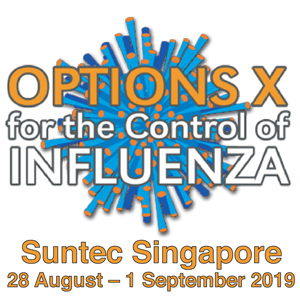
.jpg)